|
by Douglas Silas
Specialist SEN solicitor
Can you believe that we are already now coming towards the end of this very strange and difficult year for everybody of 2020. I think we have also all now gradually become a bit desensitised to the incredible changes that we have seen throughout this year.
We are also now constantly being bombarded with (sometimes irrelevant) information from every which way that we turn. Keeping up with things takes up more and more of our valuable time, so we now have to be very careful, otherwise we may not have any quality time left to spend time with our family, to focus properly on work or to do the other tasks that we need or want to do. So, I have now decided to try and keep these updates more focused on providing just the information that I think that people need to know about what is happening in the world of SEN. (I will still try to recount a personal story at the end though, as some people tell me that this is what they really read my updates for!) In this update, you will find sections entitled:
Don’t forget, to ensure that you never miss one, you can get my SEN Updates personally by completing your email details above,
or by following me on one of the social media platforms I use (i.e. Twitter/Facebook). You can also share this SEN Update with others (please only do so if it may be relevant to them) by using one of the icons, usually to the right or at the bottom of this page.
CURRENT GUIDANCE ON SEN & COVID-19
I always try to provide up-to-date SEN news in my updates. The only difficulty with this is that my updates are only prepared once every half term, so there is always a lot of information out there for people to go through! As I do not want to overload people with information, I am going to try to focus in this section on the main current guidance (x 2) about SEN and Covid-19, which was provided by the DfE (Department of Education) at the end of last week, entitled: • ‘Guidance for full opening: schools’ [updated on 5/11/2020] and • ‘What parents and carers need to know about early years providers, schools and colleges in the autumn term’ [updated on 6/11/2020]. As both of these sets of guidance are very long and detailed, I would encourage you to read them for yourselves directly if they concern or are of interest to you, by clicking on one of the links above. However, let me quickly give you an overview here. ‘Guidance for full opening: schools’ [updated on 5/11/2020] Focuses on how the DfE expects schools to now operate and includes: • school operations • curriculum, behaviour and pastoral support • assessment and accountability • contingency planning to provide continuity of education in the case of a local outbreak Introduction, then set out in 5 sections, as follows: Section 1: Public health advice to minimise coronavirus (COVID-19) risks, which covers: • Risk assessment • The system of controls: protective measures • Prevention • Response to any infection This section then expands ‘Prevention’, to cover: 1. Minimise contact with individuals who are unwell by ensuring that those who have coronavirus (COVID-19) symptoms, or who have someone in their household who does, do not attend school 2. Where recommended, use of face coverings in schools 3. Clean hands thoroughly more often than usual 4. Ensure good respiratory hygiene by promoting the ‘catch it, bin it, kill it’ approach 5. Introduce enhanced cleaning, including cleaning frequently touched surfaces often using standard products, such as detergents 6. Minimise contact between individuals and maintain social distancing wherever possible a. How to group children b. Measures within the classroom c. Measures elsewhere d. Measures for arriving at and leaving school e. Other considerations 7. Where necessary, wear appropriate personal protective equipment (PPE) 8. Keeping occupied spaces well ventilated 9. Engage with the NHS Test and Trace process 10. Manage confirmed cases of coronavirus (COVID-19) amongst the school community 11. Contain any outbreak by following local health protection team advice It also covers ‘Alternative Provision’. Section 2: School operations: • Transport • Dedicated school transport, including statutory provision • Wider public transport • Pupils travelling from abroad • Attendance • Self-isolation and shielding • Pupils and families who are anxious about attending school • Action for all schools and local authorities • School workforce • Staff who are clinically extremely vulnerable • Staff who are clinically vulnerable • Staff who are pregnant • Staff who may otherwise be at increased risk from coronavirus (COVID-19) • Employer health and safety and equalities duties • Supporting staff • Staff deployment • Deploying support staff and accommodating visiting specialists • Recruitment • Supply teachers and other temporary or peripatetic teachers • Expectation and deployment of ITT trainees • Performance management and appraisal • Staff taking leave • Other support • Safeguarding • Catering • Estates • Educational visits • School uniform • Wraparound provision and extra-curricular activity Section 3: Curriculum, behaviour and pastoral support: • Curriculum expectations • Education is not optional • The curriculum remains broad and ambitious • Specific points for early years foundation stage (EYFS) to key stage 3 • Specific points for key stages 4 and 5 • Music, dance and drama in school • Minimising contact between individuals • Performances • Peripatetic teachers • Music teaching in schools and colleges, including singing, and playing wind and brass instruments in groups • Playing outdoors • Playing indoors • Singing, wind and brass playing • Social distancing • Seating positions • Microphones • Handling equipment and instruments • Handwashing • Avoiding sharing instruments • Handling scores, parts and scripts • Suppliers • Pick up and drop off points • Individual lessons and performance in groups • Social distancing • Avoid sharing instruments • Physical activity in schools • Catch-up support • Behaviour expectations • Pupil wellbeing and support • Hospital schools Section 4: Assessment and accountability: • Inspection • Primary assessment Section 5: Contingency planning for remote education: • Process in the event of local outbreaks • Contingency plans • Remote education expectations • Special educational needs • Vulnerable children • Delivering remote education safely • Remote education support Annex A: Health and safety risk assessment: • Sharing your risk assessment • Monitoring and review of risk controls • Roles and responsibilities • Wider guidance on the risk assessment process • Consulting employees (general) • Resolving issues and raising concerns • Approach to risk estimation and management Annex B: education, health and care (EHC) plans: • SEND legislation • Risk assessments for children and young people with education, health and care plans (EHC) ‘What parents and carers need to know about early years providers, schools and colleges in the autumn term’ [updated on 6/11/2020] Covers matters similar to the above but now from a parent’s perspective and also includes things like attendance/assessments/admissions/uniform/mental health & well-being/local restrictions etc. I hope that this helps you.
THIS UPDATE’S FOCUS IS ON…
IPSEA (Independent Provider of Special Educational Advice) If you received my weekly updates during March to July, focused on the Covid-19 ‘lockdown’, you may recall that I not only highlighted information that I found in the news, but also as much useful information that I could find on other helpful education/disability websites. I have therefore decided to try and now make the second section of these updates focus on organisations like these, to try and signpost people to information/resources that they are able to provide to people. In this update, I want to draw your attention to IPSEA (Independent Provider of Special Educational Advice) and some of the information that they provide on their website and tell you a little bit about what they do. I have been dealing with SEN cases personally as a solicitor for nearly 25 years now. Throughout this time, whether as a ‘baby’ lawyer, or the more experienced lawyer that I hope that I have now become, I have always been involved with IPSEA in one way or another. I have also been extremely lucky during that time to watch IPSEAblossom into the very effective organisation it is now, which consistently provides help to both parents (mainly) and professionals involved with SEN. Their website is updated regularly, including for the past seven months or so about Covid-19, school re-opening and SEN provision. Under their page entitled ‘Who we are’, they say the following: “Independent Provider of Special Education Advice (known as IPSEA) is a registered charity (number 327691) operating in England. IPSEA offers free and independent legally based information, advice and support to help get the right education for children and young people with all kinds of special educational needs and disabilities (SEND). We also provide training on the SEND legal framework to parents and carers, professionals and other organisations. Why families need IPSEA By law, children with SEND are entitled to educational support that meets their individual needs. Since IPSEA was formed in 1983, we have helped to improve educational support for thousands of children with all kinds of SEND. We do this by providing free and independent legally-based information, advice and casework support. Our unique range of services has been developed to ensure that families understand their children’s legal rights and entitlements and that they are empowered to enforce those rights to secure the right education for their child. How we help IPSEA has a suite of free downloadable legal guides and resources available to parents and carers. These guides are complemented by a free Advice Line which provides legally based information and next step advice on any educational issue that is a result of a child's SEND. IPSEA’s Tribunal Helpline gives next step advice on appeals and disability discrimination claims to the SEND Tribunal and is also the gateway to our Tribunal Support Service where a referral can be made for more extensive casework support from a volunteer, including representation at the hearing. Our advice services are delivered by a national network of around 200 highly-trained volunteers, supervised and supported by IPSEA’s Legal Team members. IPSEA provides legal training for parents, school staff, parent carer forums, support groups and other organisations in order to increase their knowledge and understanding of the SEN legal framework. The proceeds raised from our training courses helps fund IPSEA’s core services (Advice Line, Tribunal Helpline and Tribunal Support Service). We also work to challenge unlawful SEND policy and influence policy development at both a local and national level. Our policy work is informed by information and evidence captured through our training and advice services, and has been instrumental in shaping law and policy in the field of special educational needs and disability. IPSEA also provides information about the range of services that they have developed and on their page entitled ‘Our Services’ they say as follows: “Our unique range of services has been developed to ensure that families, and those advising them, understand children and young people’s legal rights and entitlements to education provision. Advice Line Our Advice Line provides legally based information and next step advice on any educational issue that is the result of a child’s special educational needs or disability Tribunal Helpline Our volunteers give next step advice on appeals and disability discrimination claims to the SEND Tribunal Tribunal Support Service We make referrals for more extensive support from a volunteer, including representation at Tribunal hearings Information Service Our Information Service is for general legal enquiries and will signpost you to fact sheets and resources on our website” If parents need help about SEN, IPSEA provide other information and also some model letters about which they say: “You can download and amend our model letters to use for your own purposes. You should read the relevant section of the site about each topic first to ensure you understand how and when to use these letters. EHC needs assessments · To request an Education, Health and Care needs assessment (Model letter 1) · To request a re-assessment (Model letter 2) · Complaining when the LA does not respond to a request for an EHC needs assessment within the 6 week time limit (Model letter 9) · Complaining when an EHC needs assessment is not being carried out properly (Model letter 7) · Complaining when the LA has not issued the draft or final EHC Plan following assessment (Model letter 10) Amending EHC plans · To respond to the draft EHC plan sent by the LA (Model letter 3) · Complaining when the LA will not consider the school or college you want named in your EHC plan (Model letter 14) · Objecting to the amendments the LA is proposing to an existing EHC plan (Model letter 4) · Complaining when the local authority does not send out the final amended EHC plan in time (Model letter 15) IPSEA also provides a range of training to both parents and professionals (see their page entitled: ‘Learn about and book training’) and they also provide two very informative pages, entitled ‘News’ (which is constantly updated) and ‘IPSEA Blogs’. As I say, IPSEA is a very effective organisation for those parents and professionals who need to know about SEN. I hope that this also helps you.
FORTHCOMING SEN EVENTS
In my last SEN Update (at the beginning of the Autumn Term 2020-21), I said that the main SEN events that were due to take place around this time (many of which had been previously due to take place earlier this year) have had to be put off until next year now. I know that the Autism Show ran a webinar week recently, but it will not be up and running in person again until next June/July 2021. In terms of more forthcoming SEN events, I would draw your attention to the following:
I do realise that further changes in the Covid-19 pandemic rules may again affect whether these events actually can go ahead in person or not, so I would encourage you to keep abreast directly of what is happening with them, if one of these events interests you.
I CAN’T MOVE I’M AFRAID…
Having been working from home on a full-time basis for the last seven months or so, I am no longer galivanting around the place in my wheelchair in London (where I live), or going on my little ‘adventures’ around the world (where I go on my charity bike rides). Although I can still go to events/places ‘virtually’, over these recent months I have been reflecting on some of the situations that I have found myself in over the years, some of which have been quite amusing sometimes. So, I want to share some of these stories with you here. In this update, I want to first tell you about what happened to me when I was supposed to be going to a very prominent event, where an eminent person was due to be giving a lecture. The event was held in a very prestigious place in the midst of winter. As I knew that it would be a sought-after event, I had booked places well ahead of time and took some of my team with me. I was really looking forward to it and put a lot of planning into making sure that I could be there. How different things would have been now if the lecture had been given virtually, so that I would be able to enjoy it from the comfort of my own home. As I cannot use public transport in my electric wheelchair, we all took a large people-carrier cab up to the venue (which can also transport my wheelchair for me). We were all very excited to be going to the event and I had planned for us to arrive at the venue in good time, in order to get ahead of the curve and get good seats near the front, where I would be able to properly see the speaker (I am afraid that I also have a visual impairment, so I need to sit as close as possible to the front of a seated event, in order to see the speaker properly). However, although we arrived in good time, when we got there and the cab driver took my wheelchair out of the cab for me to sit in, after I sat in it and only moved forward just a few inches, one of my front castors (the small wheels on the front of a wheelchair) came off, so I suddenly came to a complete halt and was almost tipped out forwards from the wheelchair. The castor had obviously been coming off slowly and had probably chosen this time to come off completely, so as to cause me the maximum difficulty! At the same time, the doorman of the venue, who could see that something was wrong, came down to ask me if he could help me with anything (the venue had a number of steps up to the entrance, so I had anticipated that I would be taken to a side entrance to get in, as I usually have to). When he saw the predicament that I had been placed into, he kindly brought out a chair for me to sit on. However, as it was quite a stately venue, the only chair that he could find to bring me was a very proper and ornate high-backed one, that looked a bit like a throne! Although it was very comfortable for me to sit upon, I now felt a little bit strange and self-conscious sitting on it at the front of this venue, watching people go inside, like I was some sort of king observing his subjects. Try as we may, we could just not get the castor back onto the wheelchair safely and, as time was now going by quickly and I could see lots of people arriving and going into the venue, I told the other members of my team that they should go in now and enjoy the lecture without me, which they reluctantly did, after my insistence. I then called for another cab to pick me up and take me home, but was then told that it would now be a 30 minutes or so wait, as it was the rush hour at the end of the working day. So, I waited on my ‘throne’ outside at the front of the venue, with my lopsided wheelchair besides me, getting colder and colder. Remember it was mid-winter and I had thought that I was traveling to and from the venue in a warm cab, so I was not really dressed up as warmly as I should have been. Every once in a while (although, to my increasing embarrassment, it seemed constantly), people going into the venue would ask me if I was alright and whether they could help me go in (they could see my wheelchair besides me, so had realised that I was physically disabled). I just kept smiling though as much as I could (it really was not easy) and just told them that I was fine, even though I was clearly demonstrably not! Finally, just before the cab arrived and helped to end this awful chapter in my life, although I had managed to by then to keep smiling and give out my standard response that I was fine to well-meaning strangers asking if they could help me go in, I could now no longer hide my frustration. So, when now it seemed the hundredth person asked me if I was alright and if I wanted to go into the venue, I heard myself now say through shivering and chattering teeth: “I would if I could, but I can’t move, I’m afraid!”.
With best wishes
Douglas
How useful do you find my SEN Updates?
Created with Quiz Maker
by Douglas Silas, specialist SEN solicitor Here is my update for this week. It’s been a bit of a slow week for SEN news I am afraid. So, as I know that people sometimes rely on my SEN updates to keep abreast of forthcoming SEN events and, as nearly all of them in the past few months and those in the next few months have had to be rearranged, I thought it may be helpful for me to give you some information about these this week. I hope that this helps people again 1. What has happened this week? As you may recall, the Naidex exhibition which focuses on disability and which was due to be held at Birmingham NEC in March, is now due to be taking place on 9-10 November 2020. Their website states: “Naidex is Europe’s largest and most inclusive event for the independent living community. Naidex is for all! We welcome everyone who is living with health conditions or impairments, as well as anyone caring for or supplying to this community.” READ MORE The next thing that I want to draw you attention to it The Autism Show, which was due to take place at Excel in London, the NEC in Birmingham and at EventCity in Manchester, in June 2020. It is now due to be taking place at the same venues, but in a slightly different order this time on 20-21 November at EventCity in Manchester on 4-5 December at Excel in London and at the NEC in Birmingham on 11-12 December 2020. Their website states: “If you’re looking for information and direction pre or post diagnosis, are facing daily challenges, or approaching significant transition points, then The Autism Show can help you.” READ MORE The third thing that I want to highlight this week is the TES SEN show, whose London show usually takes place in October every year and who were, for the first time, going to also hold a North show in April in Manchester. However, they have only rescheduled (as far as I can see) to again only hold a London show at the Business Design Centre on 8-9 January 2021 Their website states: “Visit the UK's leading special educational needs (SEN) show on 8 - 9 January 2021 and discover the tools, resources and support to empower young learners with SEN.” READ MORE 2. What does all of this mean? I know that a lot of people are nervous still about going to exhibitions again and I am sure that the organisers of all these events have put in place as many facilities and precautions as possible, to make everything as safes as can be. In fact, the Naidex website actually states: “We have been working closely with all event industry stakeholders developing an industry-wide ‘All Secure Standard’ alongside the UK government that will allow organised industry gatherings take place again. Through the four key cornerstones we will ensure our visitors, exhibitors, and colleagues, are protected whilst making events high-quality and productive experiences.” However, please do not feel under any pressure to go to these events if you do not feel able or ready to. Your health and the health of your loved ones around you always comes first… 3. Where can I find further information?
Aside from clicking on the relevant links for more information, I would again remind you of the very useful resources and information provided on the following websites: - IPSEA - Council for Disabled Children - Contact - Scope - Special Needs Jungle I would also highlight again the fact that you can now get digital copies of the magazines: SEN Magazine and Autism Eye which are both very helpful to any parents or professionals involved with children/young people with SEN. Keep safe until next week. With best wishes Douglas P.S I understand that there are a number of educational or other useful resources now on the web - I would be very grateful if you could let me know of any that people are finding useful, so that I can direct others to them. P.P.S. I also want to highlight again the fact that there are currently a lot of scams out there, both online and through texts/WhatsApps. Please be extremely careful and help yourself and others not to become victims. You can learn more at: www.FriendsAgainstScams.org.uk. by Douglas Silas, Specialist SEN Solicitor It is always so hard to believe at this time of year that we are already halfway through the academic year - we now have more time behind us than in front of us! In this SEN Update, you will find sections entitled:
As I always say, I know how busy everyone is, so please feel free to read just the sections that are of interest to you, or read everything; the choice is always yours. Don’t forget, to ensure that you never miss out on one, you can get my SEN updates personally by completing your email details below, or by following me on one of the Social Media platforms that I use, at the top of this page. You can also share this update with others (please only do so if it may be relevant to them), by using one of the icons usually to the right or at the bottom of this page. TRYING TO HELP PEOPLE HELP THEMSELVES If you have read my SEN Updates over the years, you know that I genuinely try to help people as much as I can. I also try to help people help themselves as well with free information, such as that on our constantly evolving website at www.SpecialEducationNeeds.co.uk. But I know that we are now also at the start of the appeal season for school transfers this year. So, this year, I have decided to resurrect my previous seven-day email course, which is now called: ‘How to Win a SEN Tribunal Appeal’. As you may already know, I launched the course a few weeks ago and, as usual with my SEN Updates, it was sent out at 8.45am on a Friday morning. I set it up so that I would be notified when somebody signed up and I thought that a few people who needed it would probably sign up to it in the first week or so. But I was then astonished to find out that by 8.50am I had received five notifications of people signing up and that by 8.55am, over 10 people had signed up. During the course of that Friday and the ensuing weekend, over 100 people had signed up and since that time, a few hundred people have signed up. I have also been getting emails from people recently out of the blue, thanking us for writing the course and making it available for free. I was even amused by one email that I received from someone, a few days into the course, checking that there was no charge for the advice that we were giving away for free! In case you think you may benefit from it or need it, I have dedicated a page on our website for ‘‘How to Win a SEN Tribunal Appeal’ where you can sign up for it, but you can also sign up for it at the bottom of every page on our website. Can I encourage you to sign up if you think that you may need to appeal now or in the future and to also forward this information/link onto people if you think they may benefit from it, or need it. I hope that this helps. BUT I KNOW ITS GETTING HARDER FOR PEOPLE… After the reaction to my SEN appeal email course, I was also contacted by a number of parents who told me that they needed to appeal, wanted my help, but could not afford for me to do everything for them. They have asked me if there is any way I can help them still by writing their appeal for them to lodge and then letting them represent themselves through the appeal process. This need has struck a chord with me so, from today, we are going to also be offering a ‘Fixed Fee’ Service for parents to help draft their appeal (or their further evidence, if they have already lodged an appeal), to draft a ‘Working Document’ for them (for an appeal against the contents of an Education, Health and Care Plan [EHCP]), or to help prepare them for representing themselves at a Tribunal hearing. (N.B. in all of these cases, I still need to have a 1st meeting with someone to see if they have a case and advise them generally, which I can do via videoconference, to save people from travelling). You will find more information on our Menu of Services page. Again, I hope that this helps. FORTHCOMING SEN EVENTS As you may also know (especially if you were there yourself) the annual SEN Law Conference that I stage with IPSEA and Matrix, went ahead very successfully this year a few days ago. There were some great presentations about many SEN and Disability issues from a number of very experienced speakers, with differing perspectives. I am delighted to report that we had over 260 people attending, but I also need to stress that there were about 40 who could not get a place this year and were on the waiting list. In case you could not make it this year, in my next SEN Update I am going to try to relay some of the information that was shared. However, for now, in terms of forthcoming SEN events, I am going to also remind you of some of the same SEN events that I did in my last Update, which I think might be worth going to and which are:
SOME PEOPLE JUST DON’T GET IT! As a physically disabled man using a wheelchair, I am always astonished by how some people just don’t get the fact that there are some things that I cannot do that they can do. Over the years I have got used to the fact that people who meet me for the first time (even if they hear me speak out loud and should realise that I can actually think and talk for myself) sometimes patronise me. On occasion, they cannot help themselves and try to speak to an able-bodied person beside me to ask them things about me which I can answer myself, if they just ask me directly. Funnily enough, I actually feel sorry for them, as they seem to be the one who have difficulties! This was again brought home to me at the SEN Law Conference, when I was waiting by the lift with my wife, Erica, together with one of the venue staff. The first indication we had was when the staff member turned to Erica and asked her what floor I needed to get to. I did not really think about this, because it seemed like a very normal question to ask someone and I thought that the staff member was just making conversation and trying to be helpful. However, when the lift came and we all got in and Erica and the staff member went to press the relevant buttons, we were both a bit taken aback when this staff member turned to Erica and asked her about me and my needs. Erica immediately gave me the look, which she gives me when people talk to her, rather than to me and simply replied to the staff member that she should direct her questions to me rather than to her because I could speak for myself. However, I actually want to end this update with another story from just before the beginning of the SEN Law Conference, which I told at the start of the day when I gave my welcome to everyone. I do apologise if you were there and you heard it in person, but I realise that many of you were not and I think it is a great story that illustrates some of the difficulties that I and other disabled people face sometimes, because some non-disabled people just don’t get it. When we arrived in the morning, we were quite surprised to find that there was no ramp to allow me access to the venue due to the set of about ten steps from the pavement to the venue’s entrance. This had been agreed beforehand when we booked the venue. However, I realised that it was still quite early in the day and they might not have got it down yet, or there may be another reason. But there was no ‘call button’ for me to attract someone’s attention inside, which there usually is when I go into a place, to allow me to call someone out to help me. As it happens, funnily enough, although Erica went into the venue to ask someone to come and help me, whilst I was sitting outside in my wheelchair by myself, another passer-by stopped and asked me if I needed him to go in and get someone. In any event, somebody returned with Erica with a remote control and we found there actually was a lift that had been installed at the side and top of the steps, which had been folded up which (albeit very slowly) was brought down towards the pavement for me. This allowed me to put my wheelchair on it and be lifted up to the top (again, very slowly), from where I then went into the venue for the conference itself. A few minutes later, Erica came to me and said that, after I had managed to go into the conference room, she had returned to Reception to ask why there was no ‘Call Button’ that I could have pressed for somebody to have come to my assistance, in case I had been by myself. Unbelievably, the receptionist simply answered Erica by saying: “Oh, that would be no problem, he could just come in and get us!” You just couldn’t make it up, could you! With good wishes Douglas P.S. I always find it helpful to find out what people think about my updates, so please take a few seconds to tell me what you think by going to 'Spring (Half) Term 2019-20 'SEN Update – Your Thoughts’. There are just 3 quick questions. Firstly, let me wish you a belated Happy New Year, I do hope that you have a good and peaceful 2020. Although this is my first SEN Update of the new chronological year 2020, it is still just the start of the second term in the new academic year 2019/20. In this SEN Update, you will find sections entitled:
Don’t forget, to ensure that you never miss out on one, you can get my SEN updates personally by completing your email details below, or by following me on one of the Social Media platforms that I use, at the top of this page. You can also share this update with others (please only do so if it may be relevant to them), by using one of the icons usually to the right or at the bottom of this page. WHERE ARE WE GOING? (EDUCATION COMMITTEE) You could be forgiven for thinking that the last few years that the media has been dominated by the issue of ‘Brexit’ (don’t worry, I am not going to discuss it here) and that during the last few months, the media has also been dominated by politics again in relation to the election last month (don’t worry again, I am also not going to discuss this either!). What may have been overlooked though is the Education Committee’s report on SEN and Disabilities that was published on 23 October 2019. The first few paragraphs of the ‘Summary’ of the report states as follows: ‘In 2014, Parliament legislated with the intention of transforming the educational experiences of children and young people with special educational needs and disabilities. The reforms were ambitious: the Children and Families Bill sought to place young people at the heart of the system. However, as we set out in this report, that ambition remains to be realised. Let down by failures of implementation, the 2014 reforms have resulted in confusion and at times unlawful practice, bureaucratic nightmares, buck-passing and a lack of accountability, strained resources and adversarial experiences, and ultimately dashed the hopes of many. The reforms were the right ones. But their implementation has been badly hampered by poor administration and a challenging funding environment in which local authorities and schools have lacked the ability to make transformative change. The Government has recently taken initial steps to rectify the latter of these two challenges, but there is much left to be done. There is too much of a tension between the child’s needs and the provision available. The significant funding shortfall is a serious contributory factor to the failure on the part of all involved to deliver on the SEND reforms and meet children’s needs. Ultimately, however, unless we see a culture change, within schools and local authorities and the Government, any additional money will be wasted and make little difference to their lives…’ Those were the first three paragraphs of the summary but there are actually 12 paragraphs in all. The other paragraphs also talk about the need for greater oversight, the need for reduced bureaucracy and conflict, the need to reduce unlawful practice, the need to improve experiences and opportunities, the need to improve the input of health and social care, the need to improve therapy provision, the need to focus again on the Local Offer and the need to adopt a whole-school approach, rather than just adopting a piecemeal approach. The Education Committee's report is split up into two parts, which are respectively entitled: ‘Our Report’ and ‘Our Evidence’ and it is quite long and detailed. If you want to read the whole report, which runs to 127 pages, you can do so in one of its forms here: Online/PDF/Interactive Report, or you can read their ‘Conclusions and Recommendations’ which only runs to 38 paragraphs (which, in turn, refer to relevant parts of their report). But to try and make your life a bit easier, it may also help you if I set out here the first seven paragraphs of the Education Committee’s ‘Conclusions and Recommendations’, which state as follows: ‘1.We are confident that the 2014 reforms were the right ones. We believe that if the challenges within the system—including finance—are addressed, local authorities will be able to discharge their duties sufficiently. (Paragraph 17) 2.We recommend that when the Government makes changes to address these challenges, it should avoid the temptation to address the problems within the system by weakening or watering down duties or making fundamental changes to the law. (Paragraph 18) 3.The Department for Education set local authorities up to fail by making serious errors both in how it administered money intended for change, and also, until recently, failing to provide extra money when it was needed. (Paragraph 20) 4.The significant shortfall in funding is a serious contributory factor to the failure on the part of schools and local authorities to meet the needs of children and young people with SEND. However, unless there is a systemic cultural shift on the part of all parties involved, additional funding will make little difference to the outcomes and experiences of children and young people with SEND. (Paragraph 21) 5.While we acknowledge the extra money provided in the spending review, both for schools and social care, we deeply regret that this spending review process was insufficient in tackling the fundamental challenges facing both children and adult social care. We acknowledge the Government’s recent Budget announcement and hope that this will be tackled at that point. (Paragraph 24) 6.Nobody benefits when Departments avoid accountability and try and pass the buck. The Department for Education, together with the Department for Health and Social Care, should develop mutually beneficial options for cost- and burden-sharing with the health and social care sector. (Paragraph 25) 7.Nobody appears to be taking any action based on the counting and measuring that is taking place, but even worse, no one appears to be asking anyone to take responsibility for their actions. There appears to be an absence of responsibility for driving any change or holding anyone accountable when changes do not happen. (Paragraph 27) …’ Again, I am not going to repeat here everything that they said there as, if you do want to see everything for yourself you should read the Report/’Conclusions and Recommendations’ yourself. However, I think it is clear from what I have quoted above, that more needs to be done to properly implement the changes still. As I have said before though, a new piece of legislation often takes 10 to 20 years to bed in and, when you think about it, although we have been talking about the need for a new SEN framework now for well over a decade, the Children and Families Act 2014 has actually only been implemented for just over five years now. SEN LAW CONFERENCE (UPDATE) As you will probably already know from the reminder email that I sent out earlier this week (on Monday afternoon), the annual SEN Law Conference for 2020 that I am delighted to stage with IPSEA and Matrix is soon taking place on Tuesday 3 March 2020. This year, it is going to be held again in Central London, but will be held this year (mainly for space reasons etc.) at the De Vere Grand Connaught Rooms, London WC2B 5DA near Holborn. I am very pleased with the agenda and the range of speakers this year, which you can see for yourselves on the conference website. However, I’m afraid that the ‘Early Bird Discount’ is now only available until this coming Monday 13th January 2020 so, if you have not already booked your place, now may be the best time to do it, which you can do again on the conference website here. I understand that ticket sales are already approaching 200, so I probably need to remind you again that, during the past couple of years, we have been fully booked up some time before the event and have then had to stop selling tickets. So, if you were hoping to come, please hurry to get your ticket as soon as possible, whether or not you wish to avail yourself of the Early Bird Discount. FORTHCOMING SEN EVENTS In terms of other forthcoming SEN events in the next couple of months, I would draw your attention to the following:
PUTTING YOUR FEET UP!
My apologies again - this last section is a bit longer again today than usual. I know that many of you have heard me relate stories over the past few years from my international bike rides, using a specially modified recumbent trike, for the charity, Norwood, that helps children and young people with disabilities (just in case you don’t know already, I am physically disabled myself and use a wheelchair to get around). But I have realised recently that I have not actually told the story of how I managed to start riding in the first place, nor tell you how I got my trike in the first place. That is a story in itself! So, I have decided to tell you this story today... It all began when I started speaking with my friends, Paul and Stephen, who themselves had done many international bike rides before for Norwood. They shared their stories with me (sometimes when we were all coincidentally training in the same gym) about having done bike rides in places like India, South Africa, or in other exotic climes. Hearing their stories and adventures made me want to do one myself. However, as I was already physically disabled and had a deteriorating condition, which was progressing a little bit quicker than I expected, I knew that it may be impossible or, at least, quite a tall order for me to ever do one. They now tell me that they thought I would eventually let the subject drop. However, I persisted discussing this with them over the years and eventually, to their surprise, I ultimately plucked up the courage and asked them if I would be able to do a ride with them. Of course, we all realised early on that if this was to be any kind of possibility, I would need to become a physically strong rider and we would need to ride on a tandem of some kind, where they could do the most energetic work and I could do what I could. However, we also realised that we would have an added practical difficulty because I could not balance properly (as my condition causes me to fall a lot). We genuinely thought that it was not possible to connect a trike and a bike and get two independent chain-sets, working together, so I decided to present the problem to Vincent (who is also a wheelchair user), who designs and makes my wheelchairs. Vincent is one of the few people who I trust to advise me about things like this, as he is very good at making and designing not only wheelchairs, but also other kinds of mobility devices for disabled people (for which he has even won a ‘Tomorrow’s World’ award - remember that?) Unfortunately though (for me), Vincent works and lives in Liverpool, whereas I am based in London. Knowing that we would benefit from a face to face meeting, Paul and I went with my wife, Erica, and another friend to visit Vincent. After driving up there for about two and half hours, we discussed the problem in great detail with him, but he said that he did not think that it was possible. However, he told us that he remembered helping a disability bike club in Manchester once. He made a call to them and, to our delight, they told him that if we rushed over to them straightaway, we could look at some of the bikes they had at a race track they were using that afternoon. We therefore all quickly piled into the car (without Vincent) and drove to Manchester, about another hour's drive away. We reached the club/race track just a few minutes before they were due to close. There were a number of different bikes/trikes that we now saw, including bicycles and other forms of twin person bikes and trikes. This included the trike I now use (called a Hase ‘Kettwiesel’), but we first spied another kind of three wheeled tandem/trike, where the disabled person would sit and pedal on the front and the non-disabled person would sit and pedal on the back. After persuading the club’s staff to not end their session quite yet, they allowed Paul and I to give this tandem/trike a go and we set off around the track together on it. Sitting at the front, I was powering as hard as I could go to try and impress Paul and it all seemed to be going quite well for the first 200 metres of the 400-metre track. However, at that point it got much harder for me and it took me a lot more effort to finally complete the last 200 metres. When we passed the finishing line, I was then very surprised to turn around and see Paul with his feet up near the handlebars. Paul then told me that, when he had seen how strong I seemed to be for the first 200 metres, he had decided to take his feet off his pedals and put them up for the last 200 metres to see how strong I actually was! Paul then said that, as he now could see that I was much stronger than he thought I would be, I should try and ride on my own on the ‘Kettweisel’. I therefore was put onto this trike and went off by myself around the track (my eyesight was a lot better in those days, which allowed me to ride by myself!). It was an incredible feeling my being on that trike for the first time as, for the first time in many years, I felt really free again. I zoomed off around the track and made my way back around quite quickly. When I came back in everyone was smiling at me and I too had a big smile on my face! “That’s it then…” said Paul, “…we’ve now found the trike for you, haven’t we?” In the next couple of weeks. Paul and I had bought a Hase ‘Kettwiesel’ for me, which he also had modified and the rest is history. So there you have it, that’s the story! See, a lot of things can happen when you don’t look behind you… With good wishes Douglas P.S. I always find it helpful to find out what people think about my updates, so please take a few seconds to tell me what you think by going to 'Spring Term 2019-20 'SEN Update – Your Thoughts’. There are just 3 quick questions. Gosh, isn’t time moving fast again, as we are now getting close to the end of 2019 (but remember, for those of us following the academic year, our ‘year’ won’t end until July 2020!) In this SEN Update, you will find sections entitled:
Don’t forget, to ensure that you never miss out on one, you can get my SEN updates personally by completing your email details below, or by following me on one of the Social Media platforms that I use, at the top of this page. You can also share this update with others (please only do so if it may be relevant to them), by using one of the icons usually to the right or at the bottom of this page. THERE MUST BE SOMETHING WRONG (THE CONTINUING SEND CRISIS) If you have read my SEN Updates in recent years, you will know that I have tried to highlight some difficulties I have noticed over recent years after the introduction of Education, Health and Care (EHC) Plans by the Children and Families Act 2014. You may remember also that one section in my Spring (Half) Term 2018/19 update was entitled: "The SEND Crisis”. I wish I could be more positive with you in this update, but I am afraid that everywhere I seem to turn these days seems to be telling me (both directly and indirectly) that difficulties are continuing and that things these days even seem to be getting a bit worse. There must be something wrong. For example, I am often involved with appeals to the SEND Tribunal, but this past year the SEND Tribunal seems to have been inundated with appeals which has meant that a lot of appeal hearings are having to be postponed at a very late stage, because of a lack of judicial time. The affect of this is crushing to many parents, both emotionally and financially and is playing havoc with the diaries of many educational and other associated professionals. I regularly hear the arguments that the whole appeal process is often felt by parents not to be fair, but I also hear that many Local Authorities (LAs) are still struggling to maintain their statutory duties, with the excessive funding cuts they have had in the past decade or so. No matter what perspective you have, the impact of funding cuts having severely hindered the work also of schools/colleges and thereby also affect pupils/students, so that some children and young people are sometimes not having access to any education at all, not just not having access to appropriate provision or placement. I am afraid that I am increasingly and continually seeing the system being attacked from all sides, with lots of difficulties not only regarding the amount of EHC assessments required and then the level of provision required by them, but also associated difficulties with restricted access to health and care provision (such as CAMHS [the Child and Mental Health Adolescent Service]) or the social care system (which is charged with keeping our children safe). I cannot tell you how upsetting it is to see this all happening. However, I was a little bit buoyed by reading the latest SEND Newsletter (November 2019) from the Department of Education (DfE) which says as follows: ‘The SEND Review The government has announced the launch of a crosscutting review of SEND. Five years on from the Children and Families Act, the review will look at how the system has evolved since then, how it can be made to work best for all families and ensure quality of provision is the same across the country. Recognising the importance of joined-up support, it will also explore the role of health care in SEND in collaboration with the Department of Health and Social Care. The review will consider:
It will conclude with action to boost outcomes and improve value for money, so that vulnerable children have the same opportunities to succeed, as well as improving capacity and support for families across England.’ As ever, these are fine words, but it is important that we follow through with things and look to the future. We owe this to our children and young people… SEN LAW CONFERENCE – SAVE THE DATE On a more uplifting note, I think that this is probably a good opportunity for me again to remind you that next year’s SEN Law Conference, which I help stage with IPSEA (which stands for Independent Provider of Special Education Advice) and Matrix will be held on Tuesday 3 March 2020 in Central London. We hope to be able to put out final details within the next week or so, but I have seen the draft agenda this week and it looks very exciting and also a bit different from the last couple of years. I encourage you again to put the date in your diary now and, when it is formally announced (don’t worry, I will let you know), please book your places quickly to avoid any disappointment (and to take advantage of the ‘early-bird’ discount!) I only say this because I know that some people left it to the last minute and missed out last year, even though we increased the venue size to try and accommodate more people. FORTHCOMING SEN EVENTS In terms of forthcoming SEN events in the next couple of months, I would draw your attention to the following:
SO WE DO IT!
My apologies - this last section is a bit longer today than usual. I have recently returned from doing my 10th (yes, ‘tenth’!) international bike ride for Norwood, a charity which helps children and young people with disabilities. My bike rides are generally a week-long (usually about 400 kilometres over 5 days – from Monday to Friday) but, as this year's was a big one for me, I rode about 600 kilometres over six days. As you may know from my previous updates, as a physically disabled person using a wheelchair, I do these rides by using a specially modified recumbent trike, which is attached to and guided by a rider on a normal bike in front of me. The front rider not only steers for me, but can also brake for me (unfortunately, my physical reactions do not allow me to respond quickly and I also have a visual impairment which hinders me). But actually, in this final section of my update, I want to tell you about something that happened on my ninth ride, last year in Greece. At the end of Day 4 of 5 last year, after covering about 100km that day already, it had got to 4pm by our last stop and we still had about 25 kilometres to go. I knew that we had to complete the day’s ride by 5.30pm when the sun would go down, because we do not have lights usually on our bikes and I know that safety always comes first. A number of riders were very tired and resigned themselves to not being able to do the last stretch in the time/daylight left and putting their bike on the accompanying van with a trailer and riding the last section on the accompanying ‘bus’ (that also transports our luggage from stop to stop every night). I was also very tired and had already worked out that, even if I could sustain about 15 kilometres per hour (not so easy when you are sometimes climbing up quite steep hills), I would not be able to do this last section within the remaining slot of daylight and, therefore, I was also starting to resign myself to having to sit out the last section, or be prepared to be ‘swept up’ by the ground crew and put on the ‘bus’ and my trike on the trailer. I really thought that I could not do it. However, something amazing then happened… My friend, Assaf, (a strong rider, who I have ridden with many times over many years), was my front rider, whose bike was attached to my trike. When I said that I didn’t think I would be able to do the last bit, in his no-nonsense style, he then just asked me: "Are you saying that you don't want to do it, or are you saying that you do want to do it, but you do not think you can?". I replied that it was the latter, that I wanted to do it, but I didn't think we would be able to; but he then simply responded to me: “So, we do it!” I now immediately felt a renewal of energy and when some of the other riders, who were about to give up and sit on the bus, heard that Assaf and I were still going to try to ride the next bit, they also felt a renewal of energy and decided to ride with us (including my son, Zachi). I cannot tell you about the thrill I then felt when riding that next section during the last hour or so. The first part was actually quite a hard slog, as we seemed to be continuously riding uphilI and I wondered sometimes if we had actually bitten off more than we could chew. But when we got to about 5pm and we saw the sun starting to set in the sky (by which time I had also been swapped to another strong rider called Steve), we all suddenly started riding faster and faster knowing that we still had about 10 kilometres to go and only about 30 minutes in which to do it. At one point, I saw the ‘bus’ in the distance and resigned myself to the fact that the ground crew were probably going to ‘sweep’ us up, but I suddenly found an increase of power again and started riding faster and, strangely, as we got nearer to it, the 'bus' disappeared. We were now all riding in a large convoy, riding together watching the sun gradually setting in the sky, but this was only encouraging me to ride even faster. The other riders around me saw this and that I was 'going for it', which somehow again renewed them with energy and they all kept up with me, which pushed me to try to go faster, which in turn made them speed up, pushing me to go faster – it was circular - you get the idea! We now seemed to be ‘flying’ along at speed and I noticed that we were starting to go downhill, which was making us go even faster still. It then dawned on me that this was because we had been slowly ascending uphill during the first hour or so, which meant that we were now enjoying the fruits of our labour going downhill at speed. After a few kilometres more, with the sun almost now set, I could see the 'bus' again in the distance. So, again, I resigned myself to the fact that the ground crew were probably going to ‘sweep’ us up but, once more, the bus disappeared. The sun eventually set and darkness was upon us, so I now thought to myself that there was no possible way that we were going to be allowed to ride without lights but, almost miraculously, a rider who had lights on his bike went to the front of the convoy and another rider. also with lights on his bike. went to the back so that other people/cars would be able to see us. We therefore carried on and seemed to be going faster and faster, until we eventually arrived at our destination, greeted by other riders from the bus which had already arrived, with applause and cheering when we came into all together, with the surroundings now being in almost complete darkness. It is really quite remarkable when you start to think positively and start to believe that you can do something, even though you genuinely thought a minute before that you really cannot do it. It was only later also that I found out that the reason we had not been swept up by the bus was the fact that there was so many of us riding that the ground crew had realised that they would not be able to put all of our bikes together on the accompanying trailer, so if it had only been a few of us individually we would have been swept up, but because there was so many of us, they decided they could not do so! My son, Zachi, who has now done rides with me these past six years and who I was sharing a room with that night, laughed together when we got into our room, knowing we had shared a very special experience together. He said to me with a big smile on his face: “You love doing something don't you, when you really think you can't!" With good wishes Douglas P.S. I always find it helpful to find out what people think about my updates, so please take a few seconds to tell me what you think by going to 'Autumn (Half) Term 2019-20 'SEN Update – Your Thoughts’. There are just 3 quick questions. Welcome back again after the summer break. I hope you have managed to recharge your batteries back up and have also now had enough time to settle back into another school year - I bet the holidays now seem like a long time ago to you! In this, my first SEN Update for the academic year 2019-20, you will find sections entitled:
As I always say, I know how busy everyone is, so please feel free to read just the sections that are of interest to you or read everything; the choice is always yours. Don’t forget, to ensure that you never miss out on one, you can get my SEN updates personally by completing your email details below, or by following me on one of the Social Media platforms that I use, at the top of this page. You can also share this update with others (please only do so if it may be relevant to them) by using one of the icons usually to the right or at the bottom of this page. YOU DON'T KNOW WHAT YOU DON'T KNOW (MY RESOURCES) At this time of year I like to refresh the SEN information that I provide to people on my website. Well, this year is no different, but this year I have tried to simplify things more by making everything easier to see and access. One of the things that I have noticed over the years is that so many people ask me for information that I already have freely on our website. I have found that both parents and professionals, both those who are new to SEN, or those who are experienced with SEN, find something on it that they didn’t know they didn’t know.
(Please note that it is sometimes easier for people to find out about these things by subscribing to my 10-part email course called: ‘A Guide To SEN’).
I tried a few years ago to put a lot of this information into an App called SEN.fyi, which people could carry around on their phones; but, although I was pleased that so many people downloaded and used the App, I have since increasingly wanted to try to simplify things further if possible. So, during the past year, I have gradually retired our App and, over the summer, have instead put all the information on it and more as links all in one place now on the home page of our website. Now it can be seen and accessed quickly and easily, so people do not have to search for things. But rather than me trying to tell you what I have done, it is probably easier for you to just see it for yourself by clicking here: www.SpecialEducationalNeeds.co.uk Remember, you don’t know what you don’t know… IT’S NOT JUST ME THOUGH... (OTHER PEOPLE’S RESOURCES) It’s not just me though that is trying to help people understand SEN - there are a number of other resources out there that can help people. Often, a good start (not just for parents) is the training guides at IPSEA’s website: www.ipsea.org.uk, which includes access to online training, face-to-face training, bespoke training and webinars. You may also be helped by IPSEA’s helpful guides about SEN. Then there is the CDC’s (Council for Disabled Children’s) website at https://councilfordisabledchildren.org.uk, which also contains or refers people to a lot of useful information (including, recently, a link to a good explanation of how high needs funding currently works in local authorities, which is on the TES website). Finally, there is SEN Magazine, whose website is at https://senmagazine.co.uk who also put out a bi-monthly publication, which has started coming out in the past few months as a digital version that you can read on your eBook reader or tablet. Remember though that you can find all of these things and more by going regularly to the SEN News section of my website, which is updated daily. FORTHCOMING SEN EVENTS This section of my Update is usually shorter when we start a new school/college year, because there is often not too much for me to talk about that is coming up yet. That being said, the things that I would draw your attention to are the following:
Also, before you ask, the Annual SEN Conference that I stage with IPSEA and Matrix is going to be held next year on Tuesday 3rd March 2020 (again in London). So make sure that you put the date in your diary now if you want to come, because I know the tickets last year went quite quickly and it was sold out beforehand. I will provide more details as soon as I can. I DIDN'T SEE YOU THERE!
When you are a wheelchair-user like me, you are usually sitting down and so are then roughly half the height of somebody who is standing up (unless you are a child, who is usually still on my eye level). People therefore often fail to see me until the very last minute, because I am below their field of vision. This often ends up in quite a few near misses, either when they are walking towards me, or even when I am crossing the road. I can’t tell you the number of times that I have been nearly hit by cars, even when I am using a zebra crossing. It is usually the same thing, either one car stops for me to let me go, but other cars behind them or coming the other way just keep going, or cars drive over my path when I am crossing, because they just don't see me. We often only avoid a collision because I stop or take evasive action as quickly as possible, or they slam on their brakes when they see me, sometimes screeching to a halt just inches away from me - it is really terrifying. Yet on some occasions, people in cars who have just narrowly missed hitting me, just carry on driving without a care in the world, not realising that they have only very narrowly avoided what could have been a fatal accident for me, which they would be held totally responsible for and could mean them being convicted of manslaughter by dangerous driving and being imprisoned. It really doesn’t bear thinking about, as so many lives (including those of our respective families) could end up being changed so dramatically in a fraction of a second. But probably the best example I can give you is the one which happens to me nearly everyday, where I am quietly travelling on the pavement and approaching people coming the other way, who are so engrossed in looking down at their phones, that they do not see me coming towards them. I also cannot tell you the number of times that I've had near misses with people like this, with them not seeing me in front of them. I have to be so careful not to collide with them, but they still almost crash into me even when I have slowed down considerably and am sometimes even stationary, when they suddenly look up a bit startled and find me sitting there just in front of them. I suppose you could say that they are just in their own little world! With good wishes Douglas P.S. I always find it helpful to find out what people think about my updates, so please take a few seconds to tell me what you think by going to 'Autumn Term 2019-20 'SEN Update – Your Thoughts’. There are just 3 quick questions. I always seem to say in my last SEN update at this time of the (academic) year, that I cannot believe we are already nearly at the end of another (academic) year – and this year feels just the same. In this SEN Update, you will find sections entitled:
As I always say, I know how busy everyone is, so please feel free to read just the sections that are of interest to you or read everything; the choice is always yours. Don’t forget, to ensure that you never miss out on one, you can get my SEN updates personally by completing your email details below, or by following me on one of the Social Media platforms that I use, at the top of this page. You can also share this update with others (please only do so if it may be relevant to them) by using one of the icons usually to the right or at the bottom of this page. THE NUMBER JUST GETS LARGER EVERY YEAR(SEN STATS) If you have read my updates previously in the last few years, you will know that at this time every year, I like to share the latest annual statistics about Education, Health and Care (EHC) Plans (previously Statements of SEN) issued by the Department for Education (DfE). The latest version of the DfE statistics was issued on their website at the end of May 2019 and there are a number of different versions that you can find here. The DfE’s webpage states: ‘This publication includes information on:
It is based on the statutory SEN2 data collection.’ The main points I have pulled out are as follows: ‘The total number of EHC Plans has continued to increase … There were 354,000 children and young people with Education, Health and Care (EHC) Plans maintained by local authorities as at January 2019. This is an increase of 34,200 (11%) from 2018. This is driven by increases across all age groups, with largest percentage increases in the 0-5 (13%) and 20-25 (32%) age groups. The total number of children and young people with Statements of SEN or EHC Plans has increased each year since 2010. There were 48,907 new EHC Plans made in the 2018 calendar year … There were 48,900 children and young people with new EHC Plans made during the 2018 calendar year. This is an increase of 16% compared to 2017. The number of new EHC Plans has increased each year since their introduction in 2014. The proportion of new EHC Plans issued within 20 weeks has fallen … In 2018, 60% of new EHC Plans were issued within 20 weeks. This shows a decrease from 2017, when 65% of new EHC Plans were issued within the 20-week time limit. This figure excludes exceptional cases where the local authority need not comply with the 20-week time limit if it is impractical to do so.’ As always, the DfE documents go into a lot more detail and there are also some visual representations and more breakdowns on what they have said here but, unless you work within this area and need this information, or work for academic purposes, you will probably just want the headline information that I have quoted above. Of course, the main thing of note, is that, again, there has been quite a sizeable increase over the course of 2018 of children and young people with EHC Plans and 40% of new EHC Plans are not being issued within (the required) 20 weeks. It also concerns me a bit that we seem to have been steadily increasing the number of EHC Plans (or Statements of SEN before them) over the past eight or so years, even though we were told that the introduction of the new SEN Framework would mean that more children and young people with SEN would be able to have their needs met without EHC Plans. Yet this does not seem to be the case for reasons that I have highlighted earlier this year in a previous update, which was talking about some people saying that there may now be a SEN crisis (the one talking about the SEN Law Conference). I am really not sure what more I can say here now, since the statistics seem to speak for themselves in many ways. However, trying to look at this as objectively as possible, it does seem to me that the main increase in the last year (at 32%) has been in the 20-25 age group, which seems to be new entrants to the SEN system that may not have been there before. Also, the second largest percentage increase (at 13%) was in the 0-5 age group, which might be because we are getting better now at identifying SEN in children under the age of 5. But given the fact that we are still living in an era of public funding cuts, it does seem to me that this continual increase in EHC Plans and the corresponding demand on public funds, may mean that if we continue in this manner to increase every year, the increases will not be sustainable. I know that this feels like the ‘elephant in the room’ but I do feel it needs to be said and we all need to put our heads together to work out the best way around it, otherwise no-one is going to be happy in the end, as the number of EHC Plans just seems to get larger every year. “A PLACE AT THE TABLE” (MEDIATION FOR YOUNG PEOPLE) I recently had the pleasure of attending the launch event for the project report called ‘A Place at the Table: a report on young people’s participation in resolving disputes about special educational needs and disability’ written by Margaret Doyle (who is herself a trained mediator). Again, it may be easier for you to read the full report which you can find here. However, I know that everyone is very busy so it may be easier if I try to summarise a few things for you here. Probably the best place to start is to quote the text from the report’s website which states as follows: ‘Decisions made by local authorities on SEND provision reflect many aspects of concern in administrative justice, including the quality of initial decision-making, accountability of public bodies, human rights considerations in the delivery of public services, mechanisms by which people can challenge and appeal such decisions. The project has sought to contribute to our understanding of the way these aspects of administrative justice are experienced through the mandates of children’s rights and participation and access to justice to our knowledge from a best practice for including children’s and young people’s voices in the process. The project has focused primarily on young people aged 16-25 in England and their involvement in SEND mediation. Reasons for this focus includes the new rights conferred on young people at age 16 by the Children and Families Act 2014; the steep increase in mediation numbers, from 75 in 2014 to nearly 2,500 in 2017, and the distinctive fault of parties in mediation, as decision-makers, which differed from their role in tribunal appeals or ombudsman complaints. The expectation is that it will be of value to the issue of participation of children and young people of all ages and in other jurisdictions and in other forms of complaint and dispute resolution, including appeals to the SEND Tribunal and complaints to the Local Government and Social Care Ombudsman. The report draws on interviews and discussions; documents produced during the project, including blog posts and a briefing paper; and a summary of a round table discussion held in June 2018. Participants, who have been hugely generous with their time and contributions, have included mediators, tribunal members, local government, advice and advocacy organisations, parents/carers and expert academics. Three key things have been explored in this project:
I can also probably do no better than to quote from the ‘Emerging Findings’ in the report itself as follows: ‘During the course of the project, key messages have arisen that go beyond mediation and tribunal practice needing to adapt for more inclusive participation. A key message is that ‘participation’ covers a range of types and levels of involvement, from expressing views to making decisions. In the SEND context, it is important not to see this range as a hierarchy, with some types of participation more valuable than others. Facilitating participation and taking account of children and young people’s views have long been emphasised in the SEND Code of Practice. However, in the context of legal advice under the Children and Families Act, it is decision-making rights for young people that are new. Yet it is currently difficult to determine the extent to which young people are exercising their rights to request mediation and to register an appeal to the SEND Tribunal because the data is not collected. The conclusion reached in this project is that few young people are doing so. It also appears that a small number of young people attend SEND mediation or SEND Tribunal hearings. Figures from one SEND mediation provider, which works with about one-third of all local authorities in England, suggest that children and young people attend mediation in only 8% of cases. The extent of children and young people’s involvement is not possible to determine from the collected data, so this figure is likely to reflect a range of levels of participation, including attending only and not being involved in meaningful decision-making.’ Margaret goes on to say: ‘The emerging findings suggest that: 1. Young people are not exercising their rights on SEND decision-making to the extent that might be expected. This may be because they know about their rights and choose not to exercise them. Alternatively, it may be because of the lack of a rights 'infrastructure' to support them to exercise their rights. We do not know enough to determine the reasons, but without adequate information and advice, it is difficult to expect children and young people to be aware of and exercise their rights. 2. The emphasis on participation is both a source of anxiety for young people and a means of empowerment, much as learning to drive can be. If it is a source of anxiety for some young people, this does not necessarily mean they do not want to be in the driving seat (although some may not), but they need support and practice. Decision-making is a learned skill. 3. Parents face a significant change in role as their children grow up and become rights holders, and they may need support in how to move from being advocates for their children to supporting their children to take a lead as decision-makers. The concerns that parents express about decision-making rights of young people with SEND reflect the importance of the relationship and the need to address their anxieties as well as those of young people themselves. Yet little support is available specifically addressing this. 4. The legal concept of mental capacity appears not to be well understood in the SEND context, and assumptions about capacity of children and young people can generate conflict and hinder attempts at meaningful participation in decision-making. Approaching young people's participation from a capabilities perspective rather than one of mental capacity may allow for more scope for supported participation and decision-making. Such a perspective also recognises the importance of relationships and trust between young people, their parents, and LAs. 5. Addressing both attitudinal and practical barriers may require a significant shift in culture and in political will to provide the information and advice infrastructure necessary for the exercise of those rights to become a reality. Significant changes in the information and advice infrastructure (rights awareness, legal aid, SEND expertise, advocacy) are needed to make exercising this right a meaningful and realistic option for those children and young people who choose to do so. The responsibility for these changes rests primarily with local authorities and the Department for Education as the statutory bodies, but they cannot happen without the involvement and commitment also of schools and colleges, health and social care professionals, parents, and mediators and tribunal members. 6. Insufficient data are collected and published by mediation providers and the SEND Tribunal to allow for a full picture of young people's participation. The rights for young people enshrined in the Children and Families Act are not being reflected in procedures and practice, and this contributes to a lack of administrative data on, for example, numbers of young people participating in mediation and tribunal hearings. Help will be needed from the Department for Education and local authorities. 7. Mediators and mediation providers could be doing more to engage with young people directly and to adapt their processes to be more flexible and inclusive. This includes initial awareness raising and providing information that is accessible to young people. The Professional Standards for SEND Mediators could be more detailed in the expectations of what training and experience are required of mediators in relation to working with young people with SEND. 8. Consideration is needed as to how young people can be involved as co-producers of guidance on designing/redesigning dispute resolution processes that facilitate their participation as decision-makers. This is a design challenge, however, to ensure that such co-production is not tokenistic and exploitative, and it is resource-intensive if it is to be genuinely inclusive. Established participation groups of young people with SEND have an important role, but they are not intended to be representative of young people generally, and there will be a range of views and preferences as well as a range of needs to take into account.’ Finally (at the end of the ‘Executive Summary’), Margaret’s says the following under ‘Recommendations’: ‘A number of ideas have been generated from engaging with supporters from a range of perspectives. The ideas have led to recommendations for improvements in practice and for further research, which I have set out in more detail in the final Part of this report.’ Again, I do not think I can say very much more, can I? Can I suggest again that, if this is something which may/should be of interest to you, it is probably better to read the report in full which, again, you can find here. FORTHCOMING SEN EVENTS As we are nearly at the end of the academic year, there do not seem to be many forthcoming SEN events that I think may be worth going to. I would only highlight the following
FALLING FLAT ON MY FACE!
I am going to end this update a little differently today, by not telling you a single personal story, but sharing with you a couple of stories. But I also want to first put things in context. A lot of people like to say that you should always try and reach as far as you can when you do something. This usually stems from the feeling that you need to be able to show yourself and others that you have tried as hard as you can and could not have done anything more. This is very motivating and trying your hardest like this sometimes leads to outcomes that no-one was expecting. In fact, it is also said that sometimes it is good for a teacher to ask their pupils at the end of a test, if they have really tried as hard as they could have and to put their hands up if they have not. You will be surprised at how many children will actually put their hands up and admit that they didn’t do their best, but how this lesson then teaches them for the future and motivates them to always do the best they can. But sometimes, you need to also remember not to reach too far. Although I also subscribe to the view that you should always try to do your best, as a physically disabled man using a wheelchair, but who still has to try and balance on his legs sometimes, I have found that I can sometimes actually reach too far for something sometimes and then over-balance; so the next thing I know is that I am on the floor, having fallen flat on my face! There are numerous stories I can tell you about times like these; like when I am reaching for something very carefully and slowly, putting in enormous effort to get it, but just as I am about to get it, finding that somebody, who genuinely thinks that they are helping me, then moving it to somewhere that they think is closer for me to get it, but me then being surprised and disorientated by this and not only then not getting it, but also losing my balance and falling flat on my face! Or the times when I am reaching for something, but just as I am about to get it, ending up knocking it a bit further away from me and then having to reach a bit further for it again, but ending up knocking it a bit further away from me again; and doing this over and over again until I reach just too far and, you guessed it, ending up losing my balance and falling flat on my face! What I have learnt from this though is that I just need to learn to get up myself again. I have also found that this is actually better for me in the long run, both mentally and physically. Overall, I have learnt that, whist it is important to always try your hardest, you should not over-reach for something. So, whilst I know that it often feels a bit counter-intuitive to not reach as far as you can for something, or to watch someone struggle and not do anything to assist them, please remember that sometimes you can help me by not helping me! With good wishes Douglas P.S. I always find it helpful to find out what people think about my updates, so please take a few seconds to tell me what you think by going to 'Summer (Half) Term 2018/19 'SEN Update – Your Thoughts’. There are just 3 quick questions. As I always like to say at this point of the year at the start of the summer term, we are already now nearly at the end of another academic year once more. In this SEN Update, you will find sections entitled:
As I always say, I know how busy everyone is, so please feel free to read just the sections that are of interest to you or read everything; the choice is always yours! Don’t forget, to ensure that you never miss out on one, you can get my SEN updates personally by completing your email details below, or by following me on one of the Social Media platforms that I use, at the top of this page. You can also share this update with others (please only do so if it may be relevant to them) by using one of the icons usually to the right or at the bottom of this page. (please note that this section is longer than usual, as there is so much information that I need to pack in here) ITS ALL ABOUT...TIMING! (PHASE TRANSFERS) At this time of year, many parents of children with SEN, or young people with SEN themselves often get very anxious and worried. This is because, in September (just 4 months away – or just 3, if you discount August/the Summer holidays), many children with SEN are due to be starting primary/infant school or transferring from primary/middle school to secondary school. Also, many young people with SEN are due to be transferring from secondary school to post-16 placements (e.g. colleges, as well as schools), or from post-16 placements to post-18/19 placements. This is also because, if they have not been given their preferred choice of school/placement, then they now start to realise that they only have a very limited time left to do something to, for example, challenge an Education, Health and Care (EHC) Plan (if they have one) through an appeal to the Special Educational Needs and Disability (SEND) Tribunal. The law about EHC plans (quoting the SEND Code of Practice 2015) states as follows: ‘Transfer between phases of education 9.179 An EHC plan must be reviewed and amended in sufficient time prior to a child or young person moving between key phases of education, such as: · Early years provider to school · Infant school to junior school · Primary school to middle school · Primary school to secondary school, and · Middle school to secondary school Reviews and amendments must be completed by 15 February in the calendar year of the transfer at the latest for transfers into or between schools. 9.180 For young people moving from secondary school to post-16 institutions or apprenticeships, the review and any amendments to the EHC plan (including specifying the post-16 provision/naming the institution) must be completed by 31 March in the calendar year of the transfer. 9.181 Where it is proposed that a young person is to transfer from one post-16 institution to another within the following 12 months, the LA must review and amend (where necessary) the young person’s EHC plan at least five months before the transfer takes place in all cases.’ So, for children coming to the end of Year 6 and starting Year 7/secondary school in September 2019, or children who are starting their primary schooling in September 2019, their next placements should have been determined and their EHC Plans finalised by 15 February 2019. This is, theoretically, enough time to give parents the right to appeal to the SEND Tribunal and have their cases heard by the end of the academic year in July 2019. (Following a 12 week timetable from registration to hearing, with 2 additional weeks set aside at the beginning for registration [after an appeal is lodged] and 2 weeks set aside at the end after the hearing [to produce a written decision]). For young people with SEN who are transferring to post-16/18/19 placements, their next placements should have been determined and their EHC Plans finalised by 31 March 2019. This is, again, to allow them the right to appeal to the SEND Tribunal and have their cases heard by the end of the academic year in July 2019. (This is often with their parents supporting them, provided they have 'mental capacity', otherwise it is often their parents who bring the appeal for them). Well, that’s the theory… However, there is an appeal window of 2 months from the date of the issue of the final EHC Plan to bring an appeal (i.e. by 14 April 2019 or 30 May 2019) and there is also a requirement (since the new SEN framework was brought into effect from September 2014) only to be able to appeal against the contents of an EHC plan after they have obtained a Certificate of Mediation before they can lodge an appeal. They then need to appeal within one month of a certificate being issued following mediation, or the parent or young person being given mediation information. You do not have to be a genius to work out that, if you do not appeal quickly (in relation to secondary transfer and especially in appeals for post-16 provision), then with a 12-week (+4) timetable, the need to get a mediation certificate and the 2-month (potentially +) window to appeal, you are very lucky to get an appeal listed for hearing before the end of the academic year in primary/secondary cases and even more so in post-16/18/19 cases). In previous years, this has unfortunately led to situations sometimes where parents or young people have had their appeals listed for hearing in September (or even October/November), in relation to where they should go to in September. Unless parents of children/young people agree to (or let them) have an extended summer holiday, are home-educated, or decide to in the meantime go to the school/placement put forward by the Local Authority (LA) then, unless it can be shown clearly that the school/placement that they are appealing against is inappropriate, the LA/their proposed school may then argue that the child/young person is doing well/has settled in and should not be moved. If this happens, the person bringing the appeal may then end up undermining their own appeal for a different school/placement. To be as fair as possible, I should also say that many LAs also find themselves in difficulties with sometimes no previous notice of a potential dispute until they receive an appeal (with then less time to prepare) and being faced with an increasing number of appeals from parents/young people who wish to challenge a future placement and lodge appeals, sometimes at the last minute, so that the LA often find themselves on the back foot and under pressure of dealing with many appeals at the same time, at the very end of the academic year. I am afraid that both sides can’t win. These issues can lead to a number of difficulties, especially because, as I said in my last SEN Update, the current number of appeals to the Tribunal has risen considerably in the last few years from an average of about 3,500 a year to last year being about 5,500 a year (and this looks to be increasing this year, although we will not know actual figures until next year probably). Fortunately, the Tribunal has recognised these difficulties in recent years and, some years ago, pulled down the (then) 20-week normal timetable to 12 weeks for secondary transfer appeals from registering the appeal to hearing (they tried coming down further to 7 weeks in the first year for post-16 cases, but this proved unsatisfactory). I am also pleased to report that the Tribunal has recently brought on about 20 new Tribunal Judges to help them deal with the ever-increasing workload. And, this year for the first time, the Tribunal has said that they will be willing to hold hearings ‘on the papers’ (i.e. without a hearing in person) in August (which is usually the month when people are away on their summer holidays, so the Tribunal does not usually hold hearings during that time, as people are generally away and not able to come as witnesses to give evidence in person), but only if both parties agree and the LA has already served its response to the appeal. This is all well and good I hear you say, but if we are a parent of a child with SEN/young person with SEN, or a professional doing this work, what do you suggest we do? Well, over the years, whilst I have noticed an increasing number of parents who come to see me early for help in relation to what they believe will be a forthcoming dispute/appeal about an EHC plan, unfortunately, I am also conscious that I have noticed an increasing number of people only coming to see me at the last minute, who want me to help them as much as I can, even at a late stage (again, to be fair, lawyers who work for LAs also tell me that they only get approached sometimes at the last minute). Obviously, it is always easier for me (and others) to help people when they come to me/others as early as possible (the irony is that it is not actually just about having the appeals heard earlier, but it is often possible to help them avoid an appeal in the first place). But, unless this may be a position you now realise that you find yourself in next year and therefore still have time to do something, the most important thing I can really say to you here, if you find yourself in a predicament and with your back against the wall, is not to give up hope... This is because every year, I/others can still help people, even at a late stage, by either taking over their appeal for them (usually before the Further Evidence stage/deadline), or supporting them themselves to bring an appeal, by showing them what to do and helping them ‘tighten up’ their appeal as much as possible. In fact, this year things are slightly easier (and cheaper to do), because the Tribunal has agreed to hear appeals ‘on the papers’ (i.e. without a hearing) during August, so it may still be possible for a parent/young people to get decisions on their school/placement and where they should go, in time for the start of the new academic year in September 2019 . (It is more difficult for me to help people if they come to me after a Further Evidence deadline, whose appeal will be dealt with without a personal hearing, because there may be very little I can then do. However, if they are having a hearing in person, then I can still help them prepare for it). The point that I am really trying to make here is that, there is always hope and it is always possible to do something often, but it is extremely important that somebody recognises a problem first and then does something about it as soon as possible. I am afraid it is probably like telling a good joke, it is all about …timing! NOT EVERYONE HAS AN EHC PLAN THOUGH I know I have referred to above about there being increasing appeals to the SEND Tribunal about EHC plans, it is also important for me to point out that not all children and young people with SEN have an EHC plan. So this leads me nicely on to talking to you about other difficulties I have noticed in the SEN world recently. The new SEN framework, which was brought into effect from September 2014, had a number of goals, including reducing the number of children with EHC plans (which replaced Statements of SEN). But, unfortunately, this seems to have had unintended consequences and, actually, there seems to be more children (and now young people) with EHC plans. As I see it, this problem seems to have come about in two ways:
This latter argument is a bit circular since, the logic dictates, that the more people who seek an EHC Plan, the less money there is available to make provision in maintained mainstream or special schools (or academies) and this has definitely not been helped when we have had funding cuts and austerity measures now for almost a decade and every year schools and LAs (and others) seem to be being asked to do more with less! It is almost like a self-fulfilling prophecy sometimes. It strikes me as a bit sad that a lot of disputes cannot be resolved earlier and at a more amicable and local level, because I have noticed that the longer a dispute goes on, the more polarised and fixed in their beliefs people become and that they are then less willing to compromise on things, including their principles. I am also a bit concerned that I sometimes see advisers/representatives (on both sides and both legal and otherwise) taking or defending appeals, and having unnecessary hearings, which do not really have appropriate chances of success. This just ends up causing more difficulties for everyone emotionally, financially and practically than it should have done and, often, it is the child or young person with SEN who suffers in the end (with less money available to the school/LA or parents finding themselves lighter in the pocket and without money that could have been better spent on getting support (including therapy) for them. I believe that many of these disputes could probably be resolved with better communication between the parties at an earlier stage. FORTHCOMING SEN EVENTS In terms of forthcoming SEN events that I think might be worth going to are:
A NAME, NOT A NUMBER!
Although I am physically disabled and a wheelchair user, as you may already know from reading this last section in my previous SEN Updates, I have done a number of international bike rides for charity over the past years (I am doing my 10th one later this year!) I therefore keep myself as physically fit as possible, which requires me now to train 4-5 times a week with a trainer, usually in the gym. As I have a neurological and degenerative condition, which also affects other things like my sight and fine motor skills, as well as it affecting my mobility and coordination, I do not drive any longer (I gave up being behind the wheel of a car in 2011, because I was noticing a deterioration in my co-ordination and eyesight). So, my wife, Erica, generally takes me to and from the gym in her (large) car, which also fits in it my wheelchair. As, I have been training in the gym for about 15 years, although people there now know me well as a regular by name, the gym that I go to (Pure Gym) requires members to go in and go out using a Pin Code, which they have to punch into a keyboard panel before a ‘pod’ door opens to let them in or out. As I am not able to use my wheelchair to get in and out through the normal ‘pods’, I always have to use the more accessible (and normal, but still electronically locked) door to get in and out. However, I am still required to punch my number in, before the door opens or closes and because it can be sometimes be quite difficult for me to punch in the right numbers (remember that I have fine motor and visual difficulties), so that they are recognised properly. So, Erica usually does this for me using her Pin Code (she also goes to the gym herself once or twice a week). She says it often takes up a lot of her time waiting for me to enter my Pin Code, as it sometimes takes me a few attempts to enter it successfully and this can then last for three to five minutes, (which is, understandably, difficult to have to wait for, if she is rushing somewhere else.) The funny thing here is that, over the years, Erica has been noted by Pure Gym as putting her number in quite regularly. So it always amuses me when she tells me that, she gets regular emails from Pure Gym now congratulating her on going to the gym so often and being so fit! As I like to say to her now sometimes, she is taking the credit, without doing the work! With good wishes Douglas P.S. I always find it helpful to find out what people think about my updates, so please take a few seconds to tell me what you think by going to 'Summer Term 2018/19 'SEN Update – Your Thoughts’. There are just 3 quick questions. Firstly, for those of you who have previously read my SEN Updates, you may have noticed that, over the past year or so, I have sometimes tried to put out slightly shorter and a bit later updates. This is because, from my general perception and from feedback I have received, I have started to see increasingly during these past few years that people’s lives are becoming busier and, with even more distractions around them, they seem to have less time to read things. I have also noticed that, when schools/colleges now go back in the first week of term, rather than parents having more time available again, or professionals feeling they can now concentrate better as they are back at work, in that first week back, both types of people now seem to need more time to get back on top of things. I know everybody’s time is more limited these days, so I hope that you enjoy this new shorter and later format a bit more. Don’t worry though, in all other respects, my updates are the same as before. In this SEN Update, you will find sections entitled:
As I always say, I know how busy everyone is, so please feel free to read just the sections that are of interest to you or read everything; the choice is always yours! Don’t forget, to ensure that you never miss out on one, you can get my SEN updates personally by completing your email details below, by using our App ‘SEN.fyi’, or by following me on one of the Social Media platforms that I use, at the top of this page. You can also easily share this update with others (please only do so if it may be relevant to them) by using one of the icons usually to the right or at the bottom of this page, or on our 'SEN.fyi' App (by using the ‘share’ feature at the bottom of the page). BE CAREFUL WHAT YOU WISH FOR! (THE SEND CRISIS) As you may know from my previous updates, the Annual SEN Law Conference that I co-host with IPSEA and Matrix Chambers was held this year, last week, on 5 March 2019. It still amazes me that, even though we catered for more people this year (almost 300), we still had to turn people away as we did last year (when we catered for just under 250). Please accept my apologies if one of these was you and let me point out that the conference pack, which includes the speakers’ papers/slides, is available here. If you were unable to make it this year, I want to share with you first some things said by Ali Fiddy, the Chief Executive of IPSEA, who opened the conference. Ali’s presentation was entitled: ‘SEND Crisis’ and split into three parts; firstly, looking at indicators we are in a crisis situation, then looking at the causes of the crisis from various people’s perspective (not only parents/carers, but also others such as Local Authorities (LAs), schools/colleges and SEN professionals) and lastly she made a few suggestions of how the crisis could be addressed. I will not try to tell you everything that she said (particularly if you were there, or one of those people getting the conference pack), but I want to share some things here. Ali firstly referred to the report from October 2017, from the Local Government and Social Care Ombudsman (LGSCO) where the outcome of 80% of the first 100 investigations they made about SEND were upheld, compared to a figure of 53% in other areas they investigate. She also referred to the Ofsted Annual Report for 2017/18 looking at a number of areas of LAs providing substantive services in relation to SEND provision and referred to findings like: weaknesses in the identification of children/young people with SEND; variation in quality of Education, Health and Care (EHC) Plans (including non-implementation of agreed support) and poor SEND provision provided to young people from 19-25. She also made reference to a lot of children and young people with SEND being excluded or ‘off-rolled’. Ali also raised the fact that almost half of all local area SEND inspections conducted by Ofsted/CQC (the Care Quality Commission) had required ‘Written Statements of Action’ and additionally referred to a number of Judicial Review cases brought by parents and carers. She then referred to there being a significant increase of appeals brought to the SEND Tribunal, particularly the increase in recent years when it was just over 3,500 in 2011/12, but in the last year it was over 5,500. You will recall that the new SEN Framework brought in by the Children and Families Act came into effect in September 2014. Ali then looked at causes of the crisis, referring to evidence being given to the Education Committee’s SEND enquiry, including LA evidence about having to do a lot of work in relation to transfers from Statements to EHC Plans and dealing with increasing requests for EHC Needs Assessments/Plans, without additional resources and insufficient funding, or the now extended responsibilities in relation to the 19-25 group. She also referred to schools and colleges and their feeling that there was an underestimation of children and young people’s needs in EHC Plans and a lack of support from Educational Psychology (EP) services and insufficient funding being available again (this became a theme throughout the day). She also referred to surveys conducted by schools and colleges, which referred to not enough staff and teaching assistants being available and generally insufficient support being there. In relation to SEN professionals, such as EPs, Ali said that there was an increase in requests for EHC Needs Assessments, but insufficient EPs being able to manage these. She pointed out a disappointing statistic that there had been a reduction from 1900 EPs in 2010 to 1650 in 2015. In relation to the question of how the crisis can be solved, Ali pointed that, overall, that there were some good things also, but that she felt that there needed to be more focus on successful implementation, particularly in relation to cultural shifts, the legal framework and better accountability. Ali also pointed out the fact that there needed to be better guidance from the Department of Education (DfE), more possibilities for 19-25 year olds, more advice and support for parents of young people, improved joined-up working and, of course, more funding! SOMETHING ELSE THAT MAY MAKE YOU THINK (FUTURE SEND DIRECTION) Later in the day, we also heard from André Imich, the SEN and Disability Advisor from the DfE. His presentation was entitled “Future SEND the Direction – Key Priorities” and, like Ali, he split his presentation up into three parts: firstly, looking at current challenges, then looking at successes since 2014 and lastly looking at the direction for future priorities. André identified the challenges in the delivery of the SEN reforms, highlighting problems with capacity (e.g. high staff turnover, training and changing the culture of the SEN Framework), the pressure on school places (highlighting the increased amount of demand for special school places and the need to keep mainstream schools onboard, (i.e.successful inclusion). He also pointed out the increased financial pressures on budgets, the increase of requests for EHC assessments and for EHC Plans, as well as the increasing number of EHC Plans themselves (which he said was up over 11% from 2016). André shared with us a number of graphs regarding assessments/appeals/school placements and said that the fact was, that whilst there were a number of difficulties, there were also a number of things to celebrate, in relation to ‘co-production’, ‘compliance with statutory duties’, ‘increased satisfaction with local services’ and ‘timely identification of SEND’. André also referred to LAs where there had been ‘improved attainment’ for those children and young people with SEND, where there had been stronger focus on SEN support and where more young people were going onto post-16 education, training and employment. In fact, he even went as far to say that there was improved parental confidence in a number of areas and that the DfE are encouraged by early evidence of the impact of the implementation of the SEND reforms and how they have improved the lives of children and young people, but they also recognise the challenges and that there was much more work to do to achieve consistency across the country. André also made reference to a number of the studies that Ali had previously referred to and pointed out the fact that we did not know the statistics for this last year yet and these would be coming out in May (which I will refer to in another SEN Update later this academic year). I know from speaking to people afterwards (both professionals and parents) that they felt that André was perhaps putting too positive a spin on what has actually been happening on the ground. I will not express any personal or professional views about this, but think it is better just to set out the different perspectives of Ali and André here, as to what seems to be happening in the SEN world and then let you make up your own mind. I hope that this is something else that makes you think… FORTHCOMING SEN EVENTS In terms of forthcoming SEN events that I think might be worth going to are:
YOU CANNOT CONTROL EVERYTHING...
Most people know that I am physically disabled and use a wheelchair to get around, so those who hear me say this each time in this section of my update have my sincere apologies for repeating myself; but I am always conscious that each update there are more people subscribing since the last one, who may not know this. New subscribers may also not know the fact that I have become well known over many years for doing international bike rides to raise money for Norwood, a charity for children and young people with disabilities. Anyway, you may recall that, in the ride that I did a couple of years ago, I was quite upset to find when I arrived at our destination, that the airline we had flown with, had bizarrely failed to bring my electric wheelchair from London and I therefore had to spend the first few days of the ride having to struggle around with an old-fashioned and uncomfortable manual wheelchair lent to me by the airport, until I got my own wheelchair back again. I wonder if you can realise just how difficult it was for me to be without my electric wheelchair and therefore not being as independent as I like to try to always be by being able to ‘control’ my wheelchair (which I often refer to as being my ‘legs’!) So, I decided on this next ride, after the fiasco of what happened the previous year, to try to be a bit clever. During the past year, after misplacing so many things (not helped by my sight deteriorating), I have been investing in a number of ‘Tiles’ which I have attached to my keys, briefcase and other possessions that I can then locate easily from my phone. (Just to explain a bit from the 'Tile' website: 'Tile uses Bluetooth to communicate with a companion app on a smartphone or tablet, whereby the Tile app "discovers" a Tile and establishes a connection to it using the Bluetooth signal. While competitors are restricted by Bluetooth's typical connectivity range of 100 feet , Tile's range can go far beyond that by using the Bluetooth connection of neighbouring smartphones running the Tile app to cast a wider search net.') Anyway, this time, as I realised I could not afford to lose my wheelchair for a second time, I wanted to ensure that it made it onto the plane, so I bought a new Tile to attach to my wheelchair. Unfortunately, though, I did not have time to attach it properly to my wheelchair, before I left for the ride So, at the airport, I quickly attached it to my wheelchair, by way of a strong plastic tag attached to one of the push-handles and then tucked it inside the back rest. When we boarded the plane, I had been sure to tell the ground crew who brought me on the plane that I really needed them to make sure that they put my wheelchair on the plane this time. I then did not check my phone, because another rider I was with saw out of the window on the plane whilst we were waiting on the tarmac whilst the bags were being loaded and told me that they could see that the ground crew had put my wheelchair on this time. (I was not the only person who was nervous this time, as a number of other riders had witnessed me first-hand the previous year being without my wheelchair and were really upset for me, so did not want me to have to go through this again). When we got to our destination (in Greece this time), my wheelchair was waiting for me when we arrived, so I felt quite relieved and even a little smug that everything was alright and that, even though I had not ultimately needed it, putting the Tile on as a precautionary measure had paid off in the end. We collected our bags (I had even purchased a Tile and put it in my main bag and another in my ‘day bag’ (i.e. my rucksack with me), went out of the airport and boarded the coach who was taking us to our destination for the night. I was pleased again to be told by someone who was sitting above where they were loading the luggage onto the coach (which is below where you sit), that they saw my wheelchair put onto the coach. Imagine my surprise and concern though to then see and hear the last person who came on board, hold up my wheelchair ‘Tile’ still attached to the plastic tag, but no longer attached to the wheelchair, and ask: “Has anybody lost this?” See, don’t try to be too clever! With good wishes Douglas P.S. I always find it helpful to find out what people think about my updates, so please take a few seconds to tell me what you think by
There are just 3 quick questions. Firstly, let me wish you all a belated Happy New Year - I hope you have a good and peaceful 2019. This is my first Update of the new chronological year 2019, but it is also important for me to point out that we are now over 1 term of 3 into the new academic year 2018/19. In this SEN Update, you will find sections entitled:
As I always say, I know how busy everyone is, so please feel free to read just the sections that are of interest to you or read everything; the choice is always yours! Don’t forget, to ensure that you never miss out on one, you can get my SEN updates personally by completing your email details below, by using our App ‘SEN.fyi’, or by following me on one of the Social Media platforms that I use, at the top of this page. You can also easily share this update with others (please only do so if it may be relevant to them) by using one of the icons usually to the right or at the bottom of this page, or on our 'SEN.fyi' App (by using the ‘share’ feature at the bottom of the page). HAVEN’T WE BEEN HERE BEFORE? (SEN ISSUES) As I mentioned in my previous Update, the Westminster Education Forum held its annual conference about SEND on 6 December 2018 entitled: ‘The Next Steps for SEND Policy – High Needs Funding, Local SEND Service Provision and Improving Outcomes’.This is almost an annual event these days in the Autumn term. Although I was unable to attend it personally for work-related reasons, I did manage to obtain a transcript of the event afterwards, which has made for interesting reading, so I want to share some things discussed there with you here. There was firstly a presentation from Dr Adam Boddison, the Chief Executive of nasen, entitled: ‘Where Next for SENDPolicy in England?’. In his presentation, Adam talked about some mainstream schools being SEN ‘magnets’, as they are an inclusive school that seems to attract many children with SEN. This is both because parents wanting their child with SEND to go to that school as it is more welcoming (or more happy about their implementation of SEN support), or because other mainstream schools tend to refer to children with SEN to them. But he then also spoke about the fact that a number of these other schools also do this because they realise that if they don’t do it, they may be penalised in some way. Adam also said that, whilst the principles of the new SEND Code of Practice were quite good, in identifying and meeting all the needs, it had tried to be implemented at the time of limited budgets, schools turning into academies and changes to school assessments, so that it has probably been overshadowed. One other thing that got me thinking was when Adam made reference to Ofsted and the fact that he did not think that mainstream schools should be rated as ‘Outstanding’, if they were not inclusive. In fact, he pointed to one school now graded as ‘Outstanding’ by Ofsted, even though it had not had a SENCO in place for 5 years! Overall, he felt that, at the moment, schools are judged on a very narrow set of academic outcomes and he felt this needed to be broader. He also pointed out the fact that ‘progress’ should not merely look at academic attainment, as children with SEN may not be able to make the same academic progress as others, but the progress they were making was still very important and should be recognised. All in all, I felt that Adam’s presentation neatly set up the Conference and the other speakers who were there. There were further presentations from a member of the Parliamentary Education Select Committee, who are currently conducting an Inquiry into SEN, a presentation about joint Ofsted/CQC local area inspections and one about creating effective EHC Plans for young people with SEND (from the user’s perspective). There were also a couple of panel discussions. Most people seemed to be highlighting problems with the SEN system. However, the end of the conference had a presentation from the well-known and respected Brian Lamb, who chaired The Lamb Inquiry in 2009 looking into parental confidence in the SEN system and who is the current chair for ‘Achievement for All’. Brian’s presentation was entitled: ‘Priorities for the development of SEND provision in England’ and he started by saying that, as he had been was listening to the other speakers talk about the problems with the current system, that he had been taken back to 2005/2006 and the Education Select Committee’s Inquiry where they found that parents were really unhappy and that the SEN system was not working, because there were too many exclusions, too many Tribunals etc. Brian pointed out that, although there were still many problems, we seemed to be only focussing on the difficulties and not recognising that there had been some improvements and felt that any parents would now not want to go back to the old system. However, he did recognise that there was still a lot of work to do and that there were still a lot of Local Authorities (LAs) and schools still not doing things right. Brian said (as he had done in the Lamb Inquiry) that although we should recognise that the current SEND Code of Practice would benefit from being rewritten, we would not benefit from more legislation, as it was not about changing the law, as much as it was about holding people more accountable in law. He said that we still needed to change the culture of the system to achieve better outcomes and that compliance won’t change people’s hearts and often parents will choose for their child to go to a school that was welcoming than one that was not. He repeated many times the need for us to ‘tweak’ the system rather than change it wholeheartedly and thought we could amend some things quickly like:
As the end of his presentation, Brian also spoke a lot about the SEN funding system and how this had fallen over many years, whilst trying to implement a new system, particularly for the post-16 section. So, although I was unable to attend the Conference personally, I benefitted greatly from reading the presentations afterwards and I hope this helps you in the same way. YOU DON’T KNOW WHAT YOU DON’T KNOW (10-PART EMAIL COURSE ON SEN) Over the years, as I have become more and more experienced in SEN issues and the law, I have been a bit taken taken aback to find how so many people who are personally or professionally involved in this area, need to know more about the SEN system, This even applies to those people who I feel should know about things because they are working in this area, but seem to be under a misapprehension of what the law actually says. Although, I have always endeavoured to provide as much information as I can on my website, I have recently decided to put together a 10-part email course that anyone can sign up to receive, entitled: ‘A Guide to SEN’, which I have written in as straightforward a way as I can. I have deliberately written it as a 10-part email course and dealt with different things in different parts and allowed people time out to sign up to receive it on a daily, weekly or an every 3-day basis, as I know that people have different requirements. At the end of each part I have also included links to further articles that may be of interest on other SEN topics As always, I hope that this helps as many people as possible. In fact, the email course went up on my website a few weeks ago and many people who have visited my website in the past few weeks may have already seen this and signed up to it (according to the data/stats I have received), even though I have not formally launched it until now. This has been very gratifying for me to learn, as it shows there is a real need out there. So, even if you think you know all you need to know about SEN, please subscribe if you can – you may find out something that you didn’t know before! FORTHCOMING SEN EVENTS Those of you who have signed up to receive information from me by email or on social media, will have already seen that, by request from a few people, we have extended the date for the early bird discount to today for the SEN Law Conference that is taking place this year on the 5 March 2019, which I am co-hosting with IPSEA and Matrix Chambers. As I understand it, about 200 people have already signed up to come to the conference and there are only limited places left, although we have moved venue this year to accommodate more people So I encourage you to book a place if you can now, before it is too late. If you want to seize on the extended early bird rate for a discount, then I’m afraid that you only have until the end of today to get it, if you book and pay for your place. You can do this at: www.senlawconference.co.uk. In the meantime, the other forthcoming SEN events that I think might be worth going to are:-
“CAN YOU HELP ME PLEASE?”
As a result of my progressive physical disability and visual problems, I stopped driving a car many years ago. Now, although my office is only a few minutes’ drive away from my home, I have an arrangement with a local cab company, to sometimes pick me up and drop me, either from home to the office, or from office to home, on a door to door basis. As I am still able to walk a few steps, with the assistance of somebody beside me (or rather me hanging onto them for dear life!), I can do this usually, without having to use my wheelchair. Although the cab company has a note on my account to say that I am physically disabled and can’t walk very much, so will need assistance, which they pass on to the drivers coming to collect me (many of whom already know me), this information does not always filter down and so I need to remind them on each call when I book, to make sure that they tell the driver about my difficulties and to park as close as possible to the door, so that I only have a little way to negotiate. I sometimes have to work late in the office and, this time, as my wife, Erica, was out and couldn’t get me, I rang for a cab, which they said would be about 5-10 minutes. As usual, I reminded them to tell the driver that I was disabled and to park as close as possible to my office. I was therefore pleasantly surprised when, after only after a couple of minutes, I received a call from the cab driver on my mobile phone to say that he had already arrived. On this occasion, the driver didn’t speak very good English. I came out of my office and locked up, but to my surprise, he was not outside, as I thought he said. I should also point out that it was a very cold evening and I do not do well in the cold, as my body seizes up. I called back the number in my calls list on my mobile phone and found that he had actually gone to the wrong place, but I could now spot him over the road and a little way up. Struggling to make myself understood, I said to him that I could see him and waved my hand (difficult when you are trying to keep your balance) and asked him if he could see me. He then said he knew where I was and, as I thought that was it now, I put the phone down. But instead of him pulling out of his parking space and driving towards me, he pulled out, drove in my direction, then turned into a side road and went off in a different direction! I was not expecting this and quickly called him back again and asked him what he was doing. It took me a further few minutes to find out where he was now and to tell him how to get back to me (remember I was now very cold and still trying to stand). Eventually, I got the driver to come to where I was, but he then parked a bit away and, rather than getting out of his car, he stayed sitting in it waiting for me to come to him! I, therefore called him again and said that I could not come to him and asked him if he could move his car nearer to me. Fortunately, almost miraculously, at this same time, my friend, Mark, who lives around the corner from my office was passing by, walking home from the tube station. Mark could obviously could see from the look on my face that something was wrong. He therefore came ovver to me and I explained to him what was happening. Mark immediately went to the driver and explained that he needed to bring his car closer to me, which he then did. Mark and the driver now helped me get into the car with my bag. Once I was settled sitting in the car, Mark looked at the driver and said: ‘”Please be very careful with this man - he is very precious cargo!’ However, when we got to my home a few minutes later, even though I asked the driver now to put the car onto the driveway, so that I would not have so far to walk to the front door, he still parked it on the road outside my house and I then had to try and make myself understood again to explain that I needed to be a bit nearer. The driver re-parked his car on the driveway and now tried to help me out of the car and to the house. But, unfortunately, he tried to manhandle me and made it much harder for me (I usually hold onto a person and walk at my own slow pace, but here he was grabbing me and pulling me at a faster rate than I could manage, so that I felt exhausted trying to keep up). When I get to the door, the driver usually helps me open it and brings my things in, but now, because of the difficulties already experienced, I told him that he should just put my things down and I would get myself in. He didn’t seem perturbed by this and, before I knew it and hadn’t even opened the door, he had got back in his cab and drove off. The whole episode had taken about 20 minutes, which is a long time, given the fact that this trip usually takes just a few minutes. I was also by now freezing and it took me a few more minutes to try and put my key in the door, as I was shivering so much that I could not hold my key steady. Sometimes people just don’t understand! With good wishes Douglas P.S. I always find it helpful to find out what people think about my updates, so please take a few seconds to tell me what you think by
There are just 3 quick questions. We are now moving towards the end of the chronological year 2018 (don't worry, the academic year 2018/19 lasts until July 2019!) So you will not hear from me now again until my Spring SEN Update in January 2019. In this SEN Update, you will find sections entitled:
As I always say, I know how busy everyone is, so please feel free to read just the sections that are of interest to you or read everything; the choice is always yours. Don’t forget, to ensure that you never miss out on one, you can get my SEN updates personally by completing your email details below, by using our App ‘SEN.fyi’, or by following me on one of the Social Media platforms that I use, at the top of this page. You can also easily share this update with others (please only do so if it may be relevant to them) by using one of the icons usually to the right or at the bottom of this page, or on our 'SEN.fyi' App (by using the ‘share’ feature at the bottom of the page). THIS AFFECTS US ALL (SEN FUNDING) There has been a lot of talk recently in the press about SEN Funding difficulties, including mentions of some Local Authorities (LAs) being on the verge of bankruptcy. The word ‘crisis’ has been used a lot and there has also been talk about lack of SEN funding affecting schools. I am aware also of recent legal actions brought against LA SEN budget cuts. The article that caught my eye was one entitled: “Special needs pupils being failed by system 'on verge of crisis' (rising demand puts councils in England at risk of bankruptcy, Guardian investigation reveals)” that stated: ‘Parents of children with SEND are increasingly locked in prolonged and costly disputes with councils across England who are too often failing to deliver on their legal obligations. As a result, many of the most vulnerable children in society end up without the support to which they are entitled, and are out of school for months – even years – as parents battle to secure the right provision to meet their child’s needs.’ Unfortunately, I see this happening all the time (and I am sure that many of you do too); but we must recognise the extensive and increasing duties for LAs/Schools, who are also dealing with significant funding cuts. There just seems not to be enough money to go around sometimes. This is something that affects us all. At the same time, I have seen articles about disabled people not getting services they require. One article said that one in five disabled people are having their rights violated and feel excluded from society in a ‘damning’ report by the Equality and Human Rights Commission, presented to the United Nations. It stated: ‘“more and more disabled people are finding it difficult to live independently and be included, and participate, in their communities on an equal basis.”’ I have tried to look at these problems objectively and see if there may be a solution to this problem. There is no point in me talking about increasing efficiencies - I know that there is only so much you can do to remove slack in any system and we all (particularly LAs and schools) have been tightening our belts again and again these past few years. It seems to me though that the problem may be one of forward-planning and self-fulfilling prophecies (some may call it a ‘vicious circle’). Let me explain... If budgets are increasing because of more ‘dependent’ disabled people reliant on social care funding from LAs, then the trick may be to try and teach children/young people with SEN to be more ‘independent’ earlier; and thereby reduce their reliance on the state later in life. ‘Front-loading’ the system in this way, if possible, may help in the long run to reduce financial burdens on both LAs and the Government in future years. In fact, this could also help some people into work who then pay taxes, who would not be able to otherwise. So then, rather than taking ‘out’ of the system, they will be putting ‘into’ it. This seems like a win-win to me. Remember, the old adage goes: “a little pain now, saves a lot of pain later’. I know this may seem simplistic, but although I was pleased to hear the recent budget say that austerity is at an end, I think we should all still be concerned about ongoing SEN funding crises and the impact and consequences of cuts during recent years. THIS MAY HELP MANY PEOPLE (‘ACTIVE LISTENING’) One advantage of doing what I do, is that I am asked to speak occasionally at conferences about SEN Law. The advantage is that I usually get to stay before or after my slot to hear other speakers talk. Recently, I was asked to speak at a conference hosted by the ‘CEN SpLD’ group established through the Royal College of Speech and Language Therapists (CEN SpLD stands for ‘Clinical Excellence Network for Specific Learning Difficulties’). One of my fellow speakers was a very experienced speech and language therapist called Maggie Johnson. Her talk was entitled: ‘Active Listening for Active Learning’ and, as I was very taken by some of the things she said, I would like to share them here with you, as I think that this may help many people. Although the talk was focusing on working with children/young people with Specific Learning Difficulties, or other children/young people with Speech and Language difficulties, I think it will be of benefit also to children/young people with SEN and, dare I suggest, even to lots of us personally, as well as professionally! Maggie firstly introduced the concept of ‘Active Listening’ by describing it as a two-way process involving listening, decision-making and participation. She said that it means recognising when you have not heard something properly (or do not understand something properly) and then seeking to put it right - she called this: ‘Conversational Repair’. Maggie pointed out how curriculums are usually verbally mediated and can therefore be sometimes hard to understand for children/young people with SpLD/Speech and Language difficulties/other types of SEN. She then asked us how we would cope in a situation, where we did not understand something said to us. She also pointed out that, whilst we sometimes think that a child/young person does not understand something because they are not paying attention, it may actually be that they are not paying attention because they do not understand something! Maggie said that this was specifically a problem for children/young people she worked with and spoke about the importance of empowering children/young people with difficulties, to ask for clarification if they did not understand something. Turning to the speaker, standing close to them and being aware that messages cannot always be understood, may also help us identify reasons for non-comprehension, or breakdowns in communication and help us address problems. Maggie put across her subject very well, including playing videos of children she had worked with, where she had deliberately confused or withheld instructions, so that we could see for ourselves their responses, both before and after ‘Active Listening’ input. This really helped me understand things better. Very simplistic you may think again, but this makes so much logical sense when you reflect on it, doesn’t it? Think about it - how can you pay attention to something if you do not understand it? We have all been in situations like this, where we have ‘switched off’ if we do not understand something. Why do we expect a child/young person with SpLD/SEN to be any different? It would take me far too long to detail here everything else that Maggie said, but if this is something of interest to you, there is her book called: ‘Active Listening For Active Learning’ which you can find here. PLEASE BOOK EARLY THIS YEAR (SEN LAW CONFERENCE) As many people know, together with the IPSEA and Matrix, I helped put on the first new annual SEN Law Conference at the Law Society in Central London last March 2018. You may recall that it was a specialist conference that provided legal and policy updates on all aspects of this fast-moving developing area of law and was aimed at professionals working with:
Speakers included representatives from the Department of Education, a Local Authority, the Local Government & Social Care Ombudsman, the SEND Tribunal etc., as well as IPSEA and Matrix. As this was a new annual SEN Law Conference for us, we were not sure how many people would want to attend, but we found that all the tickets had been sold for the 225 places, well before the conference itself was held in March 2018, so some people found that they could not attend and were disappointed. The SEN Law Conference is this year being held on Tuesday 5 March 2019, again in Central London. Although not all details are yet finalised, there will this year again be a great line up of speakers and SEND topics that will be covered. Bearing in mind that we were booked up early last year and also listening to feedback we received, we have moved the conference to a larger venue this year at Prospero House, which has more space, better facilities and can accommodate more people. We are also launching the conference earlier this year, to give people more time to book. May I therefore suggest that, if you want to come, you book a place as soon as possible, to avoid disappointment. It really is already a must-attend event for anyone concerned with SEN. You cannot yet book a place, but I will send out another email in the next week with more details about how you can do so at www.senlawconference.co.uk. (We are again offering an early bird discount). I am very excited about this conference again - as I said last year, I would attend it, even if I was not helping to organise it! FORTHCOMING SEN EVENTS This section is shorter than usual. Unfortunately, I cannot currently find any notable SEN events taking place until the end of this year that I can recommend to you, although I would point out the following again:
However, I saw in the latest copy of SEN Magazine that there seem to be a number of online courses about things like Autism, Dyslexia, Attachment And Trauma, Speech, Language And Communication, the SEND Code of Practice, etc. “I CAN’T GET UP!”
I returned a few days ago from doing another international bike ride on my specially-modified recumbent trike for the charity, Norwood, which helps children and young people with disabilities. I am glad to say that, together with friends, I managed to raise about another £21,500 for Norwood. This time (my 9th), the ride was in Greece and we cycled just under 500 kilometres in 5 days to/from the beautiful city of Thessaloniki (Salonica) and also completely around the very hilly island of Thassos! People ask me why I do so many rides for Norwood. One reason is that I like to do something that helps both me (in terms of keeping active and challenging my progressive disability) and that helps me also help other disabled people (in terms of raising money). But one of the other reasons I do these rides, is that Norwood (who were the original charity that started fundraising through bike rides) also takes people with disabilities who it helps, on them, riding on the back of tandems ridden by other strong cyclists. It is very special and eye-opening riding with disabled people who you know will benefit from your fundraising. When you do a ride like this, where you share challenges everyday with other like-minded people, you really feel that you are making a difference. They say that you are also joining the Norwood 'family'! As you may know from reading this section in my previous updates, these bike rides always seem to have funny things happening to me, as a disabled person using a wheelchair. I am also conscious that, whilst I often will reveal things to people, there is a lot I don’t tell sometimes - as I often hear from fellow riders: “What goes on tour, stays on tour…” As you may recall from my update at this time last year, I arrived on that bike ride to find that our airline had left my wheelchair back in England, so I had to spend the first few days without it (although I had one lent to me in the interim by the airport). This time, whilst I managed to get my wheelchair to Greece, unfortunately, the cushion that I sit on was left behind by accident in England. I therefore spent the week sitting about an inch or so lower in my wheelchair. An added difficulty was that my cushion is ‘Velcro-ed’ to the seat of my wheelchair, so I then also found that with my Lycra cycling ‘bottoms’ on, I would stick to the wheelchair when I was sitting on it, which made it hard for me to get up again from my wheelchair when I needed to transfer to my trike! My finding myself ‘Velcro-ed’ to my wheelchair was very amusing to everyone during the week and, after initially feel aggrieved by this, I also found myself eventually seeing the funny side of it. One of the people who I have ridden with during the past few years is a young man with Down’s Syndrome called Nick, who has a great sense of humour and positive attitude to life, but who also has a speech impediment. So it was even funnier when I found myself one day towards the end of the ride, experiencing real difficulty getting up from my wheelchair when Nick looked at me and said: “Goes tour, stays tour!” With good wishes Douglas P.S. I always find it helpful to find out what people think about my updates, so please take a few seconds to tell me what you think by
There are just 3 quick questions. As usual at this time of year, let me say welcome back after the summer break. In this SEN Update, you will find sections entitled:
As I always say, I know how busy everyone is, so please feel free to read just the sections that are of interest to you or read everything; the choice is always yours. Don’t forget, to ensure that you never miss out on one, you can get my SEN updates personally by completing your email details below, using our App ‘SEN.fyi’, or by following me on one of the Social Media platforms that I use, at the top of this page. You can also easily share this update with others (please only do so if it may be relevant to them) by using one of the icons usually to the right or at the bottom of this page, or on our 'SEN.fyi' App (by using the ‘share’ feature at the bottom of the page). SAME BUT DIFFERENT (SEN FRAMEWORK) Things always feel more positive at the start of a new academic year, don’t they? You feel more refreshed after a break and also feel more focused again. We should feel the same this year, knowing that we now have managed to get through the first 4 years of the new SEN framework, which was brought into effect in September 2014 with the Children and Families Act 2014 and the new SEND Code of Practice (which was updated again in 2015). In the second section of this Update, I want to tell you about some practical changes that have come into force/are coming into force at the SEND Tribunal, which may help people (both personally and professionally), but I want to take a moment in this first section to just reflect on SEN things. Many people tell me that, after having been involved in special educational needs issues for many years, that it still feels the same, but they know that it is different now. What I think they mean is that, although there appear to be changes around the edges, the main SEN framework appears the same as before, as it still really concentrates on education, even though Statements of SEN have been replaced by Education, Health, & Care (EHC) Plans. Although I do understand where they are coming from, I beg to differ because there is more of a drive now towards looking at the whole needs of a child or young person with SEN (theoretically), including their health and care needs. You may know that for many years I have been at pains to state that the education/health/care system is a huge entity and that any changes take a long while to filter down. I also like to point out that there is a need for a cultural change, which can take a long while as well. A good analogy that I use about this is to say that it is like trying to turn a large ship. You cannot do it immediately when you want to change direction - it takes a long while for a ship to turn around, unlike when you are in a small boat which can change direction quickly. So please don’t feel downhearted because things may have not gone smoothly. New things need time to settle down. Now that the transitions of Statements to EHC plans and the whole SEN framework has had time to bed in, I am hopeful that, even though it has been 4 years in the making, we should now see things moving forward positively. I am also at pains to point out that people do not do things wrong deliberately or maliciously, but usually because they have made a mistake or do not know what to do. As ever, I encourage people to always try to give other people the benefit of the doubt. CHANGES IN THE SEND TRIBUNAL Over the years, the number of pages of evidence submitted by a party when bringing/defending an appeal has increased. This has meant that sometimes Tribunal panels and witnesses (as well as the parties themselves), often have to read lengthy bundles, often with duplication of reports/documents submitted by both parties. As such, the Tribunal have now issued guidance and a new appeal form, which puts a maximum limit of pages that can be submitted by a party in an appeal. I have tried to summarise things here for you, as follows: Appeal Form Changes The main changes are:
New Bundle Guidance The Tribunal has produced new guidance entitled: ‘Guidance for producing a Tribunal Bundle for the First-tier Tribunal SEND’. (Applying to appeals from 1 October 2018). There are page limits for documents submitted in an appeal, as follows:
However, these limits do not include the ‘core bundle’ of the:
Other points to note are that:
TIME FOR A REFRESH (SEN WEBSITE) Some of you may have noticed that I have slightly refreshed our website over the summer, to try and simplify things further. As well as the usual things now, like updating my Guide to the SEND Code of Practice for 2018/19, as I know how busy everyone usually is, I have cut things down, wherever possible, so that they can be read quickly. One of my favourite parts now is the page entitled: ‘A Parent’s Story’ (which you can find under the section entitled: ‘What People Say’). This is where I have asked parents that we have helped to tell their own story in their own words (some are longer than others I am afraid). This, hopefully, can give other parents hope if they find themselves in similar situations, especially where the future looks bleak sometimes. It can help them see that there is often a way out of things and their lives can change very quickly, where a child or a young person’s educational provision or placement changes. My own particular favourites are the stories that start: ‘Raising children is a demanding job …’ and: ‘It’s not so much a path you take …’ Even if you are not the parent of a child with SEN, I encourage you to read some of these stories, because it may help you understand things better. I will leave it up to you to read some or not... FORTHCOMING SEN EVENTS I am going to keep this fourth section of my update quite short this time. As to be expected at the beginning of the new academic year, there is nothing for me to report about recent SEN events that I have been to yet. Looking ahead though, the annual SEN Conference that I am staging again with IPSEA (Independent Parental Special Educational Advice) and Matrix Chambers, is now going to be held next year on Tuesday 5 March 2019 (at a London venue, still to be determined). So best to ‘Save the Date’ and put it in your diary now. As yet, more details are still to be decided but, again, all proceeds will be given to IPSEA. In the meantime, in terms of forthcoming SEN events, I want to highlight the following:
"I STILL CAN’T WALK PROPERLY!’
As usual, I like to end my SEN update with a personal story as a disabled person using a wheelchair. This time I want to talk to you about difficulties that I face sometimes when flying. Usually, (still sitting in my wheelchair), I am taken separately from the terminal on an 'ambulift' to the other side of the plane, which then rises to allow me to board the plane on the entrance opposite to the one that people usually enter. I then either manage to get down to my seat by holding onto people/things (for example, the back of a seat) or am transferred into an ‘aisle wheelchair’ (which is narrower than my wheelchair, which goes into the cargo hold) and pushed to my seat. The disadvantage of doing this is that I often am the last one to board the plane and everybody is looking at me when I arrive, so I feel that I am keeping everyone waiting. It sometimes feels as though I am doing the ‘walk’ or ‘wheel’ of shame. However, the advantage is that I am also the last one to leave the plane and so can sit down and relax for a couple of minutes more when we land while everybody gets their bags out of the overhead compartments and rush to get off (this always seems to me to be a bit of a false economy as they then only rush to get to the baggage carousel, where they still have to wait - so they have not saved any time in reality). Anyway, on this occasion, I stayed behind as per usual and, whilst we were waiting for the ambulift to arrive, the pilots came out of their cabin and I was talking with them and the stewards/stewardesses. I expressed surprise that all the people who had joined me on the ambulift to get onto the plane were no longer there and I would be taken to the terminal by myself. One of the pilots smiled and said: ‘This always happens, you get a lot of people needing assistance at the beginning, but by the time we land they miraculously no longer need assistance’. I replied: ‘I’ve got a bone to pick with you…’ They now all looked at me a bit worried. I then continued: ‘I have been flying with you all these years and I still can’t walk properly when I arrive!’ With good wishes Douglas P.S. I always find it helpful to find out what people think about my updates, so please take a few seconds to tell me what you think by
Well, as I always say at this point, I cannot believe that we are again nearly at the end of another academic year. In this SEN Update, you will find sections entitled:
As I always say, I know how busy everyone is, so please feel free to read just the sections that are of interest to you or read everything; the choice is always yours. Don’t forget, to ensure that you never miss out on one, you can get my SEN updates personally by completing your email details below, using our App ‘SEN.fyi’, or by following me on one of the Social Media platforms that I use, at the top of this page. You can also easily share this update with others (please only do so if it may be relevant to them) by using one of the icons usually to the right or at the bottom of this page, or on our 'SEN.fyi' App (by using the ‘share’ feature at the bottom of the page). PERHAPS THE REAL WORK STARTS NOW? (SEN STATS) Hopefully, we are now really there, as the legal requirement to transfer Statements of SEN to Education, Health & Care (EHC) Plans was supposed to be by 1 April 2018. Although I know that there were still some Statements to be transferred at the time of my last update (which was released at the beginning of the Summer term), I am optimistic that everything has been completed by now. If you read my Update previously at about this time last year, you will know that I like to share the annual statistics used about EHC Plans/Statements in England issued by the Department for Education (DfE). The last version of this was issued on their website at the end of May 2018 and there are a number of different versions that you can find here. That web page states: ‘This publication includes information on:
It is based on the statutory SEN2 data collection. Information on the number of transfers of statements of SEN that are yet to be completed is available in the ad hoc publications: Statements of SEN transferred to EHC plans: 31 March 2018.' The main points that I have then pulled out are as follows: ‘The total number of Statements and EHC plans have continued to increase… There were 285,722 children and young people with statutory Education, Health and Care (EHC) plans and 34,097 children and young people with statements of special educational needs (SEN) maintained by local authorities as at January 2018. This gives a total of 319,819, an increase of 32,529 (11.3%) from 287,290 as at January 2017. This is driven by large increases in the 16-19 and 20-25 age groups. The combined number of children and young people with statements and EHC plans has increased each year since 2010. There were 41,162 new EHC plans made in the 2017 calendar year … There were 42,162 children and young people with new EHC plans made during the 2017 calendar year. The number of children and young people with new EHC plans made during the 2017 calendar year has seen an increase of 6,068 (16.8%) when compared against the number of children and young people with new EHC plans made during 2016. 63.6% of statements in place at January 2017 have since transferred to EHC plans … Between January 2017 and January 2018, there were 71,320 children and young people transferred from statements to EHC plans. This is equivalent to 63.6% of the children and young people with statements that were in place as at January 2017. The period for local authorities to transfer children and young people with statements to EHC plans began in September 2014 and ended by April 2018.’ As per usual, the DfE documents go into a lot more detail and there are also some visual representations and more breakdowns on what they have but, unless you work within this area and need this information for work or for academic purposes, you will probably just want the headline information that I have quoted above. The main thing you will note, of course, is that there has been quite a sizeable increase over the course of 2017 of children and young people with EHC plans and Statements of SEN. As I say above, hopefully, there are now no Statements of SEN left to transfer to EHC plans, but looking through the visual representations used by the DfE it seems clear to me that, from 2009 to 2014, there seemed to be a fairly steady number of Statements and EHC plans, whereas, since 2015, there seems to be an ever increasing number of EHC plans and Statements every year. I therefore wonder whether this has been the opposite to what was expected (as I understood it, the original plan was for more children and young people to have their SEN met without and EHC plan?). Hopefully, we will not see another significant increase when the yearly SEN statistics are produced again by the DfE at the end of May 2019, which I will, hopefully, try again to bring you. Before I finish this section, I also wish to highlight the fact that there also seemed to be a considerable amount of Statements of SEN being transferred to EHC plans during 2017 (nearly 64%) and I wonder whether this was the main year for transfers or whether we will see a large number again for 2018. I guess that we will have to just wait and see, but I think that now EHC plans are finally in place and some might say that we are now at the end, but I wonder if we are now really just at the beginning and perhaps the real work starts now? DID YOU KNOW ABOUT THIS? (SEN INQUIRY) Coincidentally, the (Parliamentary) Education Committee recently launched an inquiry into the new SEND framework, the deadline for which to receive written submissions is imminent on Thursday 14 June 2018. The information there about the scope of the inquiry is stated as follows: ‘In 2014, the Government introduced wide-reaching changes to the SEND system, with the intention of offering simpler, improved and consistent help for children and young people with SEND. The Government claimed these changes would give families greater choice in decisions. The Committee’s new inquiry is intended to review the success of these reforms, how they have been implemented, and what impact they are having in meeting the challenges faced by children and young people with special educational needs and disabilities.’ There is a more detailed terms of reference that you can see here, which I encourage you to read if you wish to submit anything (remember, the deadline for submitting written submissions is Thursday 14th June 2018). There is also a helpful video in British Sign Language (BSL), which you may find helpful as well, as it neatly summarises what the inquiry is about (do not worry if you don’t speak BSL, as the video also has subtitles that you can read). SOME THINGS ARE WORTH REPEATING (PART 2) You may recall that in my Summer Term SEN Update, I gave a summary of what most of the speakers had said at the SEN Law Conference held at the beginning of March 2018, but I also said that I would dedicate a whole section of my next Update to what Mick King, the Local Government and Social Care Ombudsman (LGSCO) had said, as I found his talk very enlightening. Mick started by outlining the role of the LGSCO (i.e. with sections about ‘who we are’, ‘what we do’ and ‘how we do it’). He also looked at the role of the LGSCO in SEN complaints. We were then given a typical case example, before he looked at themes and trends in SEN casework and finally looking at the future and what lies ahead. Mick said that the LGSCO had twin aims, to remedy injustice and also to help to improve services (both of which supported public accountability). He pointed out that the LGSCO service was free to use and a complaint could be made by phone or online. He said that the LGSCO could look into all local government decisions, as well as decisions by other bodies (such as Admissions Authorities) and all social care decisions (both in the public and private sectors). Mick explained that the LGSCO was impartial, quasi-judicial, (e.g. they had the powers of the High Court), that they were inquisitorial, that they were independent of Government, that they had the power to extend their investigations and that their findings were binding and could only be challenged in the courts through the Judicial Review (JR) process. Mick pointed out that remedies could include both personal things (such as an apology, a formal decision, the provision of funding for a service and financial payment/reimbursement). He also said that investigations could lead to service improvement (i.e. improving procedures or training of staff) and highlighted that there were wider learning possibilities, where things were in the public interest and sometimes they would focus their reports thematically and work in conjunction with Ofsted. He added that they would publish (almost) all of their decisions on their website at www.LGO.org.uk/decisions. Mick finished by looking ahead and pointed out that there were increasing pressures on children’s services (but that the LGSCO make their judgements based on law, guidance and rights, not budgets). He also referred to the (then forthcoming) National Trial in the SEND Tribunal (which I spoke about in my last Update), making recommendations about health and care provision, as well as educational provision, including the need for more joint working with the Parliamentary Health Service Ombudsman (PHSO) and the (then impending) deadline for transfer of Statements to EHC Plans, saying that maintaining provision is key. It was very interesting for me to learn that, out of all the 19,000 complaints that they received in 2016/17, 17% of them were in relation to Education and Children’s Services (such as SEN, Children’s care, safeguarding, school transport, admissions and exclusions). It seems to me that the LGSCO may not be as well known about, as he/it should be. FORTHCOMING SEN EVENTS In my last update I, highlighted three forthcoming SEN events, two of which are still coming up. I must admit, though, that I found it quite difficult to find another exhibition/conference this time that I thought it would be worth letting you know about in this update so I am just going to highlight these two events again as follows:
YOU COULDN’T MAKE IT UP
As I run a national practice and represent parents of children and young people themselves with SEN, I find that I often have to travel around the country for hearings. I always like to travel up the afternoon/evening before and stay close to the venue, so that I know that I will arrive fresh and in good time ready for the hearing the next morning. (I am afraid that, as a physically disabled person using a wheelchair, it can take me a couple of hours to get ready, as opposed to other people, who can catch a train in the morning, or be up and ready and checked out of their hotel within 15-30 minutes!) I usually stay in a standard Travelodge or Premier Inn and book into a ‘disability’ room, as I know from experience that these are standardised and larger for me to move around in my wheelchair, as well as meeting other disability-friendly accessibility requirements. However, once in a while, I need to travel abroad by myself and book into a more standard hotel, but again in a ‘disability’ room. Please believe me when I say that there is definitely no standard form of what a ‘disability’ room means in some countries and I have stayed in hotels in some countries where things are really accessible and well thought out, but I have also stayed in some real ‘dives’ where their idea of a ‘disability’ room is really nothing more than sticking up a grab rail in the bathroom! But the story that I want to share with you in this Update is when I found myself booked into a ‘boutique’ hotel (in their supposed ‘disability’ room). From the outside and initial internal look of the hotel, there seemed to be nothing wrong and I was therefore quite looking forward to my (three-day) stay. Little did I know though, how difficult things would be for me… I won’t bore you by telling you everything that I found challenging, but although my room looked lovely when the porter opened the door for me (I needed help to bring my bag to the room), I immediately saw that there was no room in it for me to move about in my wheelchair. Fortunately, the porter immediately apologised and said he would take a large table and chairs out of the room. But after he left and I then went to use the bathroom, I found that I could not really get into it in my wheelchair. After spending some time carefully manually manoeuvring myself around, I just managed to get in, but then found that the bathroom mirror had been put up too high for me to see myself in whilst sitting in my wheelchair and when I then went to have a shower to freshen up, I found that the towels had been folded and placed too high on a rail for me to be able to reach. I therefore had to ring reception (who apologised again) to get someone to come to get the towels down for me. I then found that the shower did not have sufficient rails for me to hold onto for me to have a shower in safely (I was already quite tired, as I had been travelling all day and realised that I was by myself in a room where there was no emergency cord for me to call someone to help me, in case I slipped and fell (I will tell you another story about when this actually happened to me, in a future update). I bet you think that’s it, but I’m afraid that there’s more… I went to bed and got up in the morning, feeling a lot fresher after a good night’s sleep. I managed to get into the bathroom, got dressed and went to breakfast, which I knew was served in a room on the roof. Imagine my surprise and disappointment though, to then find that the lift only took me to the floor one level below the roof and that there was a set of stairs for me to then negotiate to get me to the room serving breakfast. I therefore had to get back in the lift and go down to reception personally (where I received another apology) who then arranged for me to have breakfast sent up to my room, to which I had to return to. And all of these same things happened to me again for the next two days. That’s not how it’s meant to be! With good wishes Douglas P.S. I always find it helpful to find out what people think about my updates, so please take a few seconds to tell me what you think by
There are just 3 quick questions. Well, here we are again at the start of the Summer term and nearing the end of another (academic) year once more. In this update, you will find sections entitled:
I’m afraid that this update is ‘top-heavy’, as I have put in a lot of detailed information about SEN into the first section. So, I have deliberately split the first section up into two parts (I will let you read Part 2 in my next update) and also downsized the other sections to compensate. As I always say, I know how busy everyone is, so please feel free to read just the sections that are of interest to you or read everything; the choice is always yours. Don’t forget, to ensure that you never miss out on one, you can get my SEN updates personally by completing your email details below, using our App ‘SEN.fyi’, or by following me on one of the Social Media platforms that I use, at the top of this page. You can also easily share this update with others (please only do so if it may be relevant to them) by using one of the icons usually to the right or at the bottom of this page, or on our 'SEN.fyi' App (by using the ‘share’ feature at the bottom of the page). SOME THINGS ARE WORTH REPEATING (PART 1) As you may know from my last update, the new annual SEN Law Conference, which I staged jointly with IPSEA and Matrix Chambers, was held on 6 March 2018. I am delighted to say that it was sold out to over 200 people a few weeks beforehand and seemed to be enjoyed by many differing types of people on the day, who were professionally or personally involved with SEN issues. However, I know that there were some people who could not attend, so I thought I would share with you here now a few things from the day, which may be of interest to you – even if you were there! We first of all heard from Ali Fiddy, the Chief Executive of IPSEA. Ali spoke to us about SEN from a parents’ perspective and opened with the now well-known d phrase: ‘Law trumps policy!’ She outlined a number of parts of the Children and Families Act 2014 and pointing out the still lack of enough joined-up working (referring also to The Children Act 1989 and the Care Act 2014). She also talked about continuing difficulties with lack of specificity in Education, Health and Care (EHC) Plans and spent a little time criticising the formats of some EHC Plans (for example, not linking provisions to outcomes, or not following the correct order of sections). Ali also discussed difficulties she had seen with transferring Statements of SEN to EHC Plans and highlighted some unlawful transfers due to:
We then heard from Mick King, the Local Government and Social Care Ombudsman (LGSCO). I found Mick’s talk quite enlightening, so I have dedicated a whole section of my next SEN update to what he said (that will be Part 2). After this,we then heard from André Imich, a SEND Adviser from the Department for Education (DfE). André said he wanted to also look at the SEND Reforms from 1st April 2018, by which time most children and young people with SEN had been transferred from Statements to EHC Plans (although he acknowledged that there were still some transfers taking place and, for those people, the legal requirements of their Statements would continue). In a fairly upbeat presentation, André spoke about things like the co-production of EHC plans working more now for many young people and parents, but how there were also still challenges for a few Local Authorities (LAs). He said that there were some LAs who were doing things more successfully than others and we needed to learn from them. He also referred to statutory duties having to be met, but acknowledged that some health and care provision was still not being sought properly in assessments, with the result that some EHC Plans that had been produced were not good. However, he also told us that there had actually been increased satisfaction in accessing local services (I know that some people do not agree with this) and that there seemed to be improvement in attainment for children and young people with SEN in the past year, compared to the year before. He said that there were more young people going on to post-16 education, training and employment, but admitted that that the quality of EHC Plans seems to vary widely and the outcomes on them are often still too general (as quoted from Ofsted and CQC). Finally, he said that parental confidence had been improved with the whole SEND system and that it was important that SEND issues covered the 14.4% (who received school-based SEN support), not just the 2.8% (who had EHC plans). We then heard from Colin Diamond, the Director of Children and Young People at Birmingham City Council, who spoke to us about ‘LAs and SEND: Opportunities and Challenges’. He highlighted the fact that Birmingham covered a very large area with over 9,000 EHC Plans, 446 Schools (including 27 special schools) and more than 205,000 pupils/students - 33% of whom were in child poverty and 30% of whom had English as an additional language). Whilst Colin pointed out at the start that he could only speak from his personal experiences in Birmingham, he gave us a very thought-provoking talk and pointed out a number of challenges also being opportunities. For example, he spoke about mainstream schools’ approaches to inclusion being influenced by perverse incentives sometimes and suggested introducing more sophisticated baselining and attainment/progress methodology. He also pointed out how we had seemed to become over-reliant on EHC plans, but said that these were expensive, bureaucratic and often added little value and that perhaps we should start thinking about using models where more resources could be guaranteed to schools. As one of the chair-people said afterwards, listening to Colin was like listening to one of your best teachers at school, because of his clear passion for what he did! After lunch, I gave a talk about advocacy in the SEND Tribunal and pointed out that winning an appeal is not just about advocacy, as it is really only one part of an appeal. I highlighted the need to prepare your case properly and to try and make things simple to understand. I also highlighted the fact that you should not over-complicate things and should always plan strategically and ahead, as well as review your case critically as soon as you can. We then heard from Judge Jane McConnell, the lead Judge at the SEND Tribunal. Jane also spoke to us about challenges and opportunities and reiterated that we needed to look at legal tests. She spoke about how the Tribunal were often finding unclear reasons for LA decisions or a lack of evidence from EHC needs assessments. She also highlighted again difficulties with the format of EHC Plans and stressed to us the importance of getting your evidence correct, both in writing and orally. Jane pointed out a few procedural changes which had been introduced over the last year by the SEND Tribunal (such as refusal to assess appeals now being listed as ‘paper hearings’ and the increased use of a [revised] ‘Request for Changes’ form) and also spoke about procedural changes that would be coming this coming year (such as revised bundle guidance, which will cap the number of pages of evidence each party can submit in an appeal [in addition to a ‘core’ bundle] and that the Tribunal would be revising their guidance for professional witnesses). Jane then spoke to us about the introduction of the National Trial, which gives the SEND Tribunal additional powers now to allow them to make recommendations relating to social care and health, as well as educational decisions (which has now started for decisions about children/young people with SEN from 3 April 2018). She said that the type of issues they expected (following a ‘Pilot’) were: Social Care:
Health:
Jane ended by saying that initial learning from the previous recommendations pilot had been that there was more positive working between SEN and social care teams within LAs (which allowed for a more holistic view of the child or young person). She also said that health issues raised were not significant or clinical issues, but had been particularly relevant for post school/FE/residential school placements, where there seemed to be no educational need. At the end of the day we heard from Sarah Hannett and David Wolfe Q.C., who gave us legal updates in relation to exclusions, disability discrimination and the (ever popular) breakdown of what had happened in the courts regarding SEN in the past year. David ended his paper with a quote from one case regarding the Human Rights Act which said: “It is a salutary reminder to all local education authorities [sic] and their staff that in performing their day-to-day functions they are discharging the United Kingdom’s obligations under the [European] Convention [on Human Rights].” I hope that what I have said above has given you a flavour of what happened at the SEN Law Conference this year and hope that you will be able to join us at the 2019 Conference next year. WHAT’S YOUR FAVOURITE LAW? Do you, like me, find people saying a lot of the time (usually when having an argument with a spouse or partner) that ‘it’s not what you say, but how you say it’? When you try and translate this concept into the law, you often find that people say that it is alright having a law sometimes, but there is no point if that law is not then implemented properly. However, I still find that we should stop and recognise that the law on SEN has changed or developed in recent years and I therefore want to highlight some of the new laws that we now have in the Children and Families Act 2014, which have become some of my favourite laws in these past few years. The first is (and if you know the Children and Families Act well by now, you will also have probably reflected upon this) Section 19, the first section, which opens the (Part 3) section on SEND. It states as follows: ‘Local authority’s functions: supporting and involving children and young people In exercising a function under this Part in the case of a child or young person, the local authority in England must have regard to the following matters –
I know that many people put a lot of weight on the words ‘best possible educational outcomes’ but, conversely, others say that this section should not be relied upon too much and we should instead focus on the word ‘regard’ as, although it seems to mark a change of direction, this secton is only aspirational in nature. The other part of the Children and Families Act, which I believe is becoming more relevant now, is Section 21(5) which states: ‘Healthcare Provision or Social Care Provision which educates or trains a child or young person is to be treated as special educational provision (instead of healthcare provision or social care provision).’ I am not sure that people yet understand the real importance of this, as whilst something might ostensibly seem to be a health or social care need, the provision for it may still be considered educational in nature. Perhaps you’ve got some different favourite laws? If so, please let me know (by using the survey link at the end). RECENT/FORTHCOMING SEN EVENTS As I have already relayed a lot above about the annual SEN Law Conference, I am keeping this section of my update quite short today. I will just say that, in terms of forthcoming SEN events, this is the time of year when I usually remind people of the following:
WHEN YOUR CHILD BECOMES YOUR FATHER...
My eldest child, Zachi, (who you may recall from previous updates recounting some of my international bike rides for charity), lives abroad. It was Zachi’s 21st birthday recently, so I flew out for a few days to celebrate with him (not an easy thing to do when you are physically disabled and use a wheelchair to get around!) (It also wasn’t a surprise for him, as there was too much pre-planning involved to get me there safely…) On our last night together (we had celebrated his birthday with his friends on the first night I was there), we went out for a pizza. However, the restaurant was full inside, so we had a drink outside whilst we waited for a table to come free and ordered our pizza. I usually only drink soft drinks when I am out in my wheelchair (I joke with people that I do not drink and drive!), so I ordered a bottle of Coke. Half of this was poured for me into a glass - I like to only drink half a glass of anything at a time, because I know that I have great difficulty with my fine motor skills & co-ordination and can easily knock things over. Soon, a table became free and our drinks were carried inside and put on it, where our pre-ordered pizza was also now waiting for us. Zachi went to the bathroom and, trying to be helpful whilst he was gone for a few minutes, I decided to try and move things around a bit on the table to make it easier for us to eat. However (and I bet you’ve already guessed this), whilst trying to move things around, I inadvertently knocked over the half-full bottle of Coke, which then quickly went over most of the pizza. I felt terrible and when Zachi returned, feeling like a naughty child, I told him about what I had done accidentally and apologised to him. Zachi just looked at me with an exasperated but knowing look on his face and said: “Can’t I even leave you for a minute?” With good wishes Douglas P.S. I always find it helpful to find out what people think about my updates, so please take a few seconds to tell me what you think by
There are just 3 quick questions. My apologies that this update is a bit later than usual. It usually gets released on the first Friday morning of every new academic half-term, but I have held this one back deliberately until the second Monday afternoon. This is because I wanted to include something useful that only happened a day before (and then I also knew people had the snow to contend with at the end of last week). In this update, you will find sections entitled:
As I always say, I know how busy everyone is, so please feel free to read just the sections that are of interest to you or read everything; the choice is always yours. Don’t forget, to ensure that you never miss out on one, you can get my SEN updates personally by completing your email details below, using our App ‘SEN.fyi’, or by following me on one of the Social Media platforms that I use, at the top of this page. You can also easily share this update with others (please only do so if it may be relevant to them) by using one of the icons usually to the right of this page (if on a computer), usually at the bottom of this page (if on a mobile device), or on our 'SEN.fyi' App (by using the ‘share’ feature at the bottom of the page). IT’S NEARLY TIME This first section of my update is not about the transfer process of Statements of SEN to Education, Health and Care (EHC) plans, as some of you may have thought. It is actually about the forthcoming implementation of a National Trial for the SEND Tribunal to start making (non-binding) recommendations about Health and Social Care provision, as well as making decisions about Educational provision, for any new appeals registered after 3 April 2018. The backdrop to this is that, for many years, parents of children and young people with SEN (and those supporting them) complained that SEND Tribunals could only focus on educational issues and sometimes a child or young person would have more complicated needs, which could fall into the realms of health or social care (i.e. non-educational) provision. As such, they would be required to sort any disputes out through often complicated alternative processes, which were not as easy to negotiate (although please do not hear me as saying that appeals to the SEND Tribunal are, by any means, straightforward). I can probably do no better than quote from the Department for Education, as quoted by the Council of Disabled Children’s (CDC’s) website which states: ‘We are trialling the First-tier Tribunal (SEND) making non-binding decisions on health and social care alongside education. The trial will launch on 03 April 2018 and run for two years. Currently appeals can only be made to the Tribunal over the education aspects of Education, Health and Care (EHC) plans, and the trial will give parents the ability to appeal associated health and social care issues via a single route. The trial will extend the powers of the Tribunal to make non-binding recommendations about the health and social care aspects of Education, Health and Care plans. This new approach will enable the Tribunal to take a more holistic view of children and young people’s needs across education, health and social care in line with EHC plans and provide a person-centred approach to decision making. It should also provide positive benefits for families and improve joint working among commissioners. An evaluation process will run alongside the Trial, looking at implementation, outcomes for families and commissioners and costs. The Trial places responsibility on LA SEND teams to:
It also places responsibility on health and social care commissioners to:
This will give families new rights and they are advised to:
There is also a support package which includes induction events, guidance for local areas and parents & young people, a toolkit and ongoing support. Personally, I think that this is a really fantastic step forward for everyone concerned about children and young people with SEND and how best to meet their needs; and another step forward to all of us ‘Working Together’. GOING, GOING, GONE… If you have read my last couple of updates, you should already know about the new annual SEN Law Conference that I am hosting jointly with IPSEA and Matrix Chambers, which is now almost upon us tomorrow on Tuesday 6 March 2018. I am delighted to let you know that over 200 people have booked for this inaugural event, which is being held at The Law Society in London - bookings were actually filled up a few weeks ago and there has been an increasing waiting list ever since. If you are going to join us then you will be pleased to hear that you got in quickly but, on the other hand, if this is something you wanted to attend but did not book in time, you may be disappointed at not being able to go (and should make a note to apply early for next year’s 2019 event [again in March] when bookings start in Autumn 2018. Fortunately, if you are in the latter category, there is some consolation in the fact that the Conference pack/papers (which I have seen and which is very good) can still be bought after the event for people to read in case they were not able to attend (for any reason). You can register your interest for somebody to contact you about this at: http://www.senlawconference.co.uk/waiting-listconference-pack.html Of course, you will get one anyway if you are coming tomorrow; and if you are there and see me, please make sure you stop me and say hello! A SNEAK PREVIEW Continuing with this topic, as I say, I have had a chance to see the SEN Law Conference pack/papers already and thought I would give you a bit of a sneak preview, as there are papers/ slides called:
There will also be some individual and panel question and answer sessions and a chance for networking. I know from personal experience that it is extremely difficult sometimes to keep up to date with everything about SEN law (even for someone like me who only concentrates on this area); so, if you are joining us tomorrow then I am sure it will prove a very important and fascinating day. However, if you are not going to be able to join us, then I encourage you to obtain the conference pack at least (and if you wanted to attend, but were unable to book a place in time), I suggest that you book as early as possible for next year’s conference! RECENT/FORTHCOMING SEN EVENTS I was very pleased to be able to attend the annual conference run by the Council for Disabled Children (‘CDC’) last Thursday 22 February 2018 (which is why I delayed this update). It was entitled: ‘SEND – Looking Beyond The Reforms’. They described it as ‘a unique opportunity to understand, debate and influence the future direction of policy, practice and legislation affecting disabled children and young people and those with SEN.’ During the morning, we heard from a number of speakers, including:
After lunch there were also a number of workshops available and I was able to attend ones about ‘Involving Young People in Strategic Decision-making’ and ‘The Children and Families Act 2014 – implications of the latest case law’. All in all, it was a very interesting day but I was particularly taken by some of the things said by Dame Christine Lenehan like:
In terms of forthcoming SEN events, I (again) would recommend:
HOW MUCH?
As a physically disabled wheelchair user, with co-ordination and eyesight difficulties, I have not been able to drive a car myself for many years now. As I also find using public transport quite difficult (overground trains are better, but using the London Underground and buses still tends to be quite hard or even impossible for me), I have had to use taxis/cabs a lot during this time. I like to think that I am quite a sociable person and can establish a good rapport with drivers quite quickly, as I need to ask them to help me either to get me into their vehicle in my wheelchair (via a ramp), or assist me into their vehicle’s ordinary seats and then put my wheelchair into the boot (I usually travel in an MPV/people carrier, so that my wheelchair does not have to be collapsed, as it has been damaged too many times in that way). During the past week or so, I have had to do a lot of travelling around the country for various SEND Tribunal hearings/events and have therefore had to spend a lot of my time in taxis/cabs. So, I want to share with you today, a story that happened to me a few years ago, that I was reminded of when re-telling the story to a parent whose hearing I attended earlier that day, whilst waiting with them for my cab to arrive to take me to the train station to return home... I always try to book a hotel near the train station/hearing venue (so that I do not have to travel too far when I arrive the evening before a hearing or to get to the venue the next morning) - I am afraid that I am one of those people who try to get to places as early as possible (although I know that I sometimes fail miserably because of all the hassles that I go through!) On this occasion, I arrived later than I hoped, but when I did, I was helped to get an (ordinary but accessible) cab by a member of staff at the train station, which came after a few minutes and I managed to get into fairly quickly. The hotel that I was staying as was only a few minutes away from the station and we also arrived fairly quickly. When I got out of the cab, I turned to the driver and asked him how much it would be. I was extremely surprised when he then told me that it would be £25. ‘How much? I asked, ‘…it has only been a very short journey!’ ‘I know’ he replied, ‘…but you are in a wheelchair’ he then said to my astonishment. I just couldn’t believe what I was hearing, but I responded and told him immediately that he was messing with the wrong person; and said that he should immediately get his manager on his phone for me to speak to. He was clearly a bit surprised about getting this response from someone who he had probably previously perceived as a weak, disabled person in a wheelchair and then made (what I felt was) the pretence of going to the other side of his vehicle and getting his mobile phone out. He returned somewhat sheepishly a few minutes later to say that he had not been able to speak to his manager, but had decided that, as I had not been told that there would be an increased price for me as I was using a wheelchair, he would only charge me £10 for the journey! Although I felt that this was still me being overcharged, it was late and I wanted to get into my hotel room as soon as possible, in order to rest for as much time as possible for the hearing next day and so I paid it (I did get a receipt from him written on the back of the taxi company’s card). I also wanted to spend no more time with him now after being treated in this way. I soon became conscious afterwards and have been since then, that another disabled person using a wheelchair, who did not have as much confidence as me, would have probably ended up paying the £25 to him, because they would probably feel quite vulnerable. It still amazes me to think that, even in this day and age, there are still people out there who will try to take advantage of disabled people like me in this way… With good wishes Douglas P.S. I always find it helpful to find out what people think about my updates, so please take a few seconds to tell me what you think by
Let me wish you for a belated Happy New Year and wish you for a good and peaceful 2018. This is my first update of the chronological year 2018 and we are also now about a third of the way through the academic year 2017/18. In this update, you will find sections entitled:
As I always say, I know how busy everyone is, so please feel free to read just the sections that are of interest to you or read everything; the choice is always yours. Don’t forget, to ensure that you never miss out on one, you can get my SEN updates personally by completing your email details below, using our App ‘SEN.fyi’, or by following me on one of the Social Media platforms that I use, at the top of this page. You can also easily share this update with others (please only do so if it may be relevant to them) by using one of the icons to the right of this page (if on a computer), at the bottom of this page (if on a mobile device), or on our 'SEN.fyi' App (by using the ‘share’ feature at the bottom of the page). TICKETS SEEM TO BE GOING QUICKLY Hopefully, you will have heard from me earlier this week with further information about the new annual SEN Law Conference on Tuesday 6 March 2018 that I am staging jointly with IPSEA and Matrix Chambers. I announced it in my last update and gave some general information then but, as promised, I have included more specific details in this update, which you can also now find on the flyer attached to this email. You will see that the venue has now been arranged for London (where most people expressed a preference for it to be held) and has been confirmed as being at The Law Society. There are also seven confirmed speakers, who (in alphabetical order) are as follows:
We have consciously chosen speakers who can provide a number of views about what is happening in the world of SEN from the differing perspectives of parents, local authorities, Ofsted and the local government ombudsman, as well as from lawyers. As we have said, this one day specialist SEN Law Conference will provide legal and policy updates across all aspects of this fast-moving and developing area of law. The conference is aimed at SEN law professionals working with the following:
I am very excited about this conference (as I would attend it, even if I was not involved in helping stage it). I am also delighted that, since starting to take bookings in December, tickets seem to be going quickly. Whilst this is not a ploy to get you to buy a ticket ;-), if you do want to come, may I suggest that you book your place now as soon as possible, to ensure that you are not disappointed later by finding that there are no places left. I have also been asked to point out that tickets for the event are £225, but there is currently an early bird discount for tickets, which are currently reduced to £195 but this discount only applies to tickets paid for by 19 January 2018 (i.e. this offer is now only open for another week). Please note, any profits from the event will be donated to IPSEA, a charity offering free and independent legally based information, advice, support and training to help get the right education for children and young people with SEND. You can book a place at www.senlawconference.co.uk and can find further information on the attached flyer (if you get this update by email – otherwise it is on the website). "IT’S MADE US BETTER PEOPLE" You may have been aware (either directly or indirectly) that there was a fair amount of media coverage about SEN issues at the end of last year (e.g. the BBC’s ‘Breakfast Time’ focus on SEN in the week at the end of November/beginning December 2017). Whilst many of the issues were things I know from my own experiences in professional practice, (which you can find here), I was struck by one of the pieces called ‘It’s Made Us Better People’ by parents/presenters Carrie and David Grant who have four children with differing special educational needs. Whilst I realise, of course, that there are sometimes many (and continual) difficulties trying to get the right specialist support/provision/placement for a child or young person with SEN/Disability, every once in a while, it is good for all of us (both personally and professionally) to remember that these children and young people can also have a profoundly positive impact on us as well, by helping us to see the world in a ‘different’ and often unique way. I encourage you to watch it if you can (you can find it here: ‘It’s Made Us Better People’). IT’S ALL ABOUT (A PARENT'S) PERSPECTIVE Which also leads me on nicely to this next section... As many of you may already know, rather than telling you about the cases in which we have been involved, there has been on my website for many years a section entitled ‘A Parent’s Story’, as I think that, it is sometimes more helpful and preferable for you to read a parent’s (or grandparent’s) perspective about what has happened in their case. I have done things like this, as I know that many parents (and grandparents) of children and young people, tell me that they draw strength and insights from reading about what other parents (or grandparents) have experienced and gone through, especially where they read about other people succeeding, even where they think that there is no hope left. I have always been taken (again both personally and professionally) by things that people have said (I warn you that it can be quite emotional to read some of them), but have not had a chance these past couple of years to update this page regularly. However, at the end of last year I found some time to add a few more stories that parents have kindly sent to me, which you can read here: ‘A Parent’s Story’. I hope to be able to update it again in the next year or so, but hope that other parents can read those that are there now and realise that there can still always be a positive outcome to their situation, no matter how bleak things may seem now. RECENT/FORTHCOMING SEN EVENTS In my last SEN update, I referred to the Westminster Education Conference taking place on 9 November 2017 entitled: ‘Next Steps for SEND Policy – SEND Reforms, Funding, Local Area Inspections and Best Practice in Provision’. Unfortunately, due to scheduling difficulties, I was unable to attend it personally, but still obtained a transcript of the event afterwards, which was very interesting to read. Again, I was struck by one of the keynote speeches given by Dr Adam Boddison, the current Chief Executive for nasen (the National Association for Special Educational Needs). His talk was entitled: ‘SEND policy – Key issues and next steps’ and he spoke about issues concerning accountability, funding, inclusion and other related things. I was surprised to learn that there are now more pupils than ever before at special schools (although, to be fair, there are also more pupils generally) and he also said that 44% of children with Education, Health and Care (EHC) Plans are now placed in special schools. When talking about inclusion, I was also surprised to learn from him that children and young people with SEN are still seven times more likely to be excluded from school (he said that he felt strongly that no child should ever be excluded from school). Adam also pointed out that some mainstream schools now seem to be magnets for attracting children and young people with SEN and that other mainstream schools seems to be happy just referring them onto them, rather than taking them in. For me, the most telling thing that Adam said (which I have also found from my professional experiences) is the importance of making sure that an EHC Plan is right from the outset and also all along, as it can affect a child and young person’s education/provision/placement later when Post-19 (or as I have seen, in Post-16 cases as well). In terms of other forthcoming events, those that I think might be worth going to are:
“CAN’T YOU USE ANOTHER PARKING SPACE?”
I always like to end these ‘SEN Updates’ with a personal story, from my perspective as a physically disabled person using a wheelchair. In this update, I want to share with you a situation that I seem to encounter on an almost daily basis - parking spaces that are reserved for disabled people, being used by non-disabled people, which means that I cannot use them. You will be very surprised about the amount of times that this happens to me, even though I no longer am able to drive... Let me say from the outset, that I do realise that there are a number of people out there who have ‘invisible’ disabilities, which may make them look like they do not need to use a disabled car parking space (e.g. chronic medical conditions that significantly impair normal activities of their daily living, but who may show no outward signs of their condition), but they usually have validly been provided with a ‘Blue Badge’ exemption. I also realise that there are non-disabled people who sometimes need to use a disabled car parking space from time to time, because they are with a disabled person who they need to easily drop off or pick up, who sometimes may not be validly displaying a ‘Blue Badge’. Unfortunately though, there are lots of non-disabled people who innocently think that it is perfectly alright to park their car in a disabled parking place, either when they are still sitting in their car, to say, pick up or drop somebody somewhere, or also when they say they are only popping out for a minute to pick someone/something up. They will often say, when asked, that they are happy to move their car - but that misses the point, I (or someone on my behalf) shouldn’t have to ask them in the first place, as they should not have parked there anyway! Parking in disabled spaces when you are non-disabled is similar to those people who do not have children with them who park in the ‘family’ reserved car parking spaces in supermarket car parks. This is also a subject that I know that upsets many people – in fact, a friend told me once that someone who was without children refused to move from a space when she (who had her children in her car) asked, because the person said that, even though they were not with her, she had children at home! (You couldn’t make that up). But what seems to cause most difficulties and what I am really talking about here, is non-disabled people who just park in a disabled parking space without a ‘Blue Badge’, often purely because they do not want to have to walk too far somewhere or, worst of all, non-disabled people who park in a disabled car parking space and display a fraudulent ‘Blue Badge’ or one that they have ‘borrowed’ from somebody else. The regulations as to the way you can use a disabled car parking space by only displaying a ‘Blue Badge’ validly are actually quite detailed; I have even known of some cases where disabled people who have a valid ‘Blue Badge’ have sometimes found that they have still been ticketed wrongly, because they displayed it incorrectly and/or a traffic warden or similar has not seen it. My experience is that too often I am faced by non-disabled people blocking disabled car parking spaces unlawfully and without good reason. The surprising thing to me is that when I (or usually others on my behalf) then tell them that I need the space, in order to avoid the difficulty of walking or pushing myself to the entrance of the place I need to get to, I find that, on many occasions, these non-disabled people can become quite aggressive, even though they may have been asked politely to move. You will be amazed at the amount of bad language and behaviour that I have witnessed over the years, usually directed at others on my behalf. I have also noticed that it is usually other people who seem to get more upset for me about a non-disabled person (or somebody looking non-disabled) using the space without displaying a ‘Blue Badge’, and it is actually then me that needs to point out to them that the other person may have an ‘invisible’ disability that we do not know about. Non-disabled people parking in disabled spaces with/without a ‘Blue Badge’ is something that irks a lot of people around me. I often find people I am with wanting to retaliate/have a go at people who do this, and wanting to make the point that they (the other people) are non-disabled and could park their cars somewhere else and walk, whereas I cannot. For example, my wife, Erica, has even sometimes asked someone who is not willing to move if they want to come and look at my wheelchair in the back of our car (which, unsurprisingly, no-one has ever wanted to), but usually they have just ignored or pretended not to hear her and quickly walked away from their parked car – it is as if they do not want to hear or see the problem that they have caused, as if it then doesn’t exist or matter – ‘out of sight, out of mind’ as they say. Erica and others around me often remonstrate with people when they see them doing this and like to point out to them that they are being incredibly selfish by not thinking of other people. I even remember one very fit and strong looking young man in the gym car park walking away after parking his car in a disabled space and not looking back when he was asked to move (probably due to embarrassment), saying that he didn’t want a fight - again, it is like a form of denial by doing this as, if you do not look at it, you can possibly pretend that it is not happening. I have also noticed that the offending non‑disabled people often try to not make any eye contact with me (again, probably due to embarrassment). They just try to ignore me and pretend that I am not there. It gives another meaning to the phrase 'invisible disability'! I have also noticed that, when somebody realises that they may be doing something wrong, they are usually already very defensive, even before you say anything to them; it is almost as if they are ready for a fight, as they become immediately aggressive (some may say that this is just them being ‘defensive’). I have found from experience, that the best way to approach this situation usually is to quickly try to deflate it, by being as nice as possible and trying to ask them as politely as possible, if I can use the space (I find that saying that you need it more than them, or at the gym [which I have to go to train for health reasons] and I am tempted to say that, if they are going to the gym, they should be more able to walk than I am, does not usually tend to end well, as they often become even more aggressive). Non-disabled people do not seem to realise how difficult it can be for someone like me who is physically disabled, to have to ask them to move, especially if I know that I will be met with a very hostile or defensive reaction. When you think about it, I sometimes cannot even speak to them without first getting the car that I am in to sometimes have to park a long way away and then make my way back (usually slowly) to where they are to speak to them – this is even more frustrating when I found that they or their car has then gone. It has also placed me in a dilemma sometimes when I see people who I know and like, doing something wrong like this, as I know that telling on them would get them into trouble, because they are parking somewhere that they shouldn’t, often by using a forged or someone else’s ‘Blue Badge’. My favourite situation though is when there are no other spaces free, and I/another person asks politely if a non-disabled driver can move their car from the disabled car parking space which they are blocking, they just ask: ‘Can’t you find another parking space?’ The point that I want to get over is that, rather than telling people that they shouldn’t do this sort of thing after the event, I really hope that people will learn from what I am saying here and not do this in the first place. Just like other things I have talked about in this update, it gives you something to think about… With good wishes Douglas P.S. I always find it helpful to find out what people think about my updates, so please take a few seconds to tell me what you think by
There are just 3 quick questions. This will be my last update for 2017 (the chronological year, not the academic one), so you will not hear from me now again until next Spring (i.e. January 2018). In this SEN Update, you will find Sections entitled:
I have deliberately only written four sections in this update (rather than my normal five) because they are a bit lengthier to read. But as I always say, I know how busy everyone is, so please feel free to read just the sections that are of interest to you or read everything; the choice is always yours. (Don’t forget, to ensure that you never miss out on one, you can get my SEN updates personally by completing your email details below, by using our App (SEN.fyi), or by following me on one of the Social Media platforms that I use listed at the top/bottom of this page. You can also easily share this update with others (please only do this if it may be relevant to them), by using one of the icons to the right of/at the bottom of this page (if on a mobile device) or on our SEN.fyi App (by using the ‘share’ feature at the bottom of the page). THE SAME BUT DIFFERENT (NEW SEN LAW CONFERENCE) Some of you will know that for over two decades, Jordan Publishing has held an annual SEN Law and Practice Conference ever year, usually in the first week of March. Personally, I have spoken for Jordans (as it has come to be known) for the past 13 years, and have actually also always attended the whole day-long conference myself, as I have always found it very useful to hear from other speakers/practitioners in the SEN field about what is happening about SEN law. The Jordans conference has historically always been well-attended, (people working in the SEN field also see it as a ‘must got to’ networking event), with a range of excellent speakers, not only solicitors, barristers and Judges working in the SEN field, but representatives from Government, Local Authorities (LAs) and parental organisations. It has always had its 'finger on the pulse' of SEN and there have always been good sessions providing analysis of SEN practice and procedures, together with good casework updates, to name but a few things. However, the Jordans conference has also been said to be too expensive for some people. Unfortunately, Jordans were taken over last year prior to their (now) last conference. Their new owners have decided to no longer hold an annual SEN conference from 2018. But I am glad to say that I have now joined up with the education law barristers from Matrix Chambers and also the charity, IPSEA (Independent Parental Special Educational Advice), in order to now stage a new annual SEN Law conference, which we plan to launch and take place next Spring in London on Tuesday 6 March 2018. The venue and speakers are not confirmed as of yet, but what I can tell you so far is that it, again:
I am very excited about this venture. We are hoping to not only attract the same audience as before (i.e.lawyers and those from schools/colleges/LAs/parents organisations etc.), but now also make it more accessible to as many other people as possible (both parents and professionals). We are hoping that it will again also become the ‘must go to’ event for anyone working or interested in SEN law (whether personally or professionally) and that it will also serve as a valuable opportunity for different (and similar) people in the field of SEN to get together once a year, in the years to come. We are not sure as of yet how many people will be coming and whether we should hold the conference just in London, or should also put it on again in somewhere like Manchester (we realise that many seminars/conferences are in London and can be very expensive (both in time or cost) for those commuting from the north to attend). THINGS WE DON’T (BUT SHOULD) TALK ABOUT (MENTAL HEALTH ISSUES) This section of my update is a bit different from my normal ones (for example, where I like to share information, try to put forward a solution to a problem or give an analysis of something). Today, I really just want to highlight an issue that has been on my mind a lot these past few years, so that we can hopefully start to talk about it. I guess that I really just want to also get people thinking about it a bit more. The world has really changed a lot in the past decade or two, hasn’t it - mainly with the advent of rapid advancements of new technology, particularly through the increasing access to and use of the internet. It is almost like there has been a quiet revolution going on and we have just accepted it! I certainly do not criticise the proliference of the internet with the now immediate access to the vast amounts of information we have at our finger tips, together with our ability to use emails, smartphones, tablets etc., but I have also seen a rapid rise in the use (and misuse) of Social Media. This seems to have now become an almost obsessive compulsion for many children and young people during the past decade or so, even though many Social Media tools have not really been around for that long (it may surprise you to learn that Facebook actually only launched in 2004 and Twitter in 2006, but others like Instagram only started in 2010 and Snapchat in 2011). But we have seen the rise during this time of substantially more mental health difficulties in children and young people (mainly teenagers, although teenage years can now seem to sometimes start during primary school!), especially during the past 5-10 years. I know that many people put this down to the increased use of Social Media, which I tend to agree with - I have seen these pressures on children and young people (for example, their peers posting pictures of themselves having a good time at parties or places, where other people feel that they are missing out [I believe that this is called ‘FOMO – Fear Of Missing Out’], but I think that mental health issues also go a bit wider than this and that this may only be part of the story. For example, I have now seen how children and young people of today seem to be expected to grow up too quickly sometimes. They often feel from a young age that the future also seems quite bleak for them, in terms of getting qualifications, getting a job, or getting on to the property ladder, let alone making it to university and being saddled with substantial debt for the rest of their life. These were not really concerns for those of us in past generations, where we did not necessarily think of these things as problems, or did not necessarily think of them at all until later in life. Which leads me onto what I want to say today about mental health issues... As I see it, the children and young people of today have it much harder and now face many more issues than those of us who have come before in previous generations. I think that we therefore need to be sensitive to this. I also know that there are many children and young people (and their families) also experiencing mental health issues everyday which, because they are not often talked about, only seems to add even more pressure onto them. It always strikes me as ironic, how people often openly feel sorry for other people who are physically ill or injured, but who do not seem to extend that same care and empathy/sympathy to people who are experiencing mental difficulties. There is almost an implication that they are somehow ‘lesser’ people because they cannot cope. I know that in my parent’s generation, people did not really speak about mental health issues. Although it was more openly discussed in my generation, I have seen that in my children’s generation now, mental health issues are even more openly talked about, but perhaps still not enough. However, when you really think about it, it is quite remarkable sometimes how we often don’t notice children and young people (or even adults) struggling with these types of difficulties, but yet they still have to try every minute of the day to overcome their anxieties and behave in a ‘normal’ way, so that they can attend school/college/work. I have also seen a real build-up in the cases of children and young people with mental health issues that I now have to deal with, mainly in terms of them becoming ‘school-phobic’, having anxiety or even more attachment issues. Unfortunately, I have also noticed that many people (including professionals who you think should know better), still don’t seem to understand or realise properly the deep extent of these difficulties. For example, I have seen parents struggle to get their children into school, who are then thought of as not being good parents. Or I have found educational professionals not really understanding or appreciating the anxieties and stresses that children and young people often go through, just to get into school or college; and to then realise that they should adopt a more positive stance with them (i.e. praise them for getting there, rather than concentrating on the times when they have not able to make it there, for whatever reason), as otherwise they are actually putting more pressures on them than they are already facing (perhaps putting on themselves). We also have to realise how as adults (both parents and professionals) that we can sometimes make a ‘flippant’ remark or throwaway line without thinking, but this can have serious implications and ramifications for a child or young person for many years to come. I am very concerned that we don’t (but should) talk about mental health issues more and try to understand them better - by not only looking at treating the ‘symptoms’ but also the root causes sometimes. Hope that I haven’t upset anybody by speaking about this here, but I thought it important for me to say. FORTHCOMING SEN EVENTS That provides a good segway for me to talk about forthcoming SEN events. This is because I would like to highlight the ‘Mental Health and Wellbeing in Schools’ conference being run by Optimus Education in London on 8 November 2017 and in Manchester on 23 November 2017. I realise that this is very short notice for many of you (it is only next Wednesday for those of you who want to attend it in London), but I think that it will highlight many of the things that I have referred to above, with a couple of the keynote speeches being entitled: ‘Overcoming The Stigma Of Social Prejudice That Still Surrounds Mental Health’ and ‘Understanding The Impact Social Media Has On Mental Wellbeing’, as well as workshops on topics such as ‘Self-harm and Eating Disorders’, ‘Depression’, ‘Stress and Anxiety’, ‘Self-Esteem’, ‘Attachment Issues’, ‘Parents and Families’ and ‘Autistic Spectrum Disorder’. In terms of other forthcoming events, (don't worry, I will provide more detail in my next update about the SEN Law Conference on 5 March 2018), the only other things that I think that might be worth going to soon are:
IT ALWAYS SEEMS TO HAPPEN TO ME, DOESN’T IT?
If you have read my SEN updates in previous years, you will probably know that, as a physically disabled person who uses a wheelchair (I have a degenerative condition known as Cerebellar Ataxia), I also have a ‘personal’ side to what I do, where I like to raise funds for Norwood, a charity that supports children and young people with disabilities. I have done this over the years by doing a number of international, week-long, bike rides, using a specially-modified recumbent trike (which is attached to a ‘normal’ cycle in front of me, where a front-rider can steer and brake for me, as I also have visual and co-ordination problems). Well, a couple of weeks ago, I successfully completed my eighth international bike ride, this time in Israel (again), with my ride this year having the catchy title of: ‘Dead Sea to Red Sea’. Again, I did the ride with my son, Zachi, (whose fourth time it was) but, as it was also Norwood’s 25th year of doing these ‘challenges’, they actually staged three different simultaneous bike rides and also a trek coming into the southernmost tip called Eilat (the two other rides were one in Jordan, called: ‘The Road To Petra’ and another one called: ‘North to South’ for fast riders, who were attempting to ride through the whole of Israel in just 5 days!) And for a second time now, my friend, Sam (Cohen), who also has a progressive condition called Usher Syndrome, where he has lost all of his sight now over the years, after growing up being partially hearing, did ‘North to South’, again on the back of a tandem. Also, for the first time, my wife, Erica, did the trek - which was far more challenging for her than what we did (she was climbing up and down mountains without ropes!) Together with a few others (especially as Sam and I need people to assist us), we raised over £20,000 and the whole set of events (which included about 250 people), has been said to have raised over £800,000! (it is not too late to sponsor us, which you can do here). But rather than talking to you about the ride this time, I want to share with you something else that happened to me that week, which I think you may find amusing (although I assure you that it didn’t seem amusing to me at the time!) As we were all buckled in and about to leave London on the aeroplane, we experienced a delay and were then told over the speakers by the captain that they had to remove 30 cases because the plane was overweight. I had been the last on to the plane because they had taken me in an ‘ambulift’ separately (the vehicle that comes to the other side of the aircraft, which is used for the easy planing and deplaning of passengers who are incapacitated, have mobility difficulties, or who use wheelchairs), so that I could stay in my electric/powered wheelchair until the last minute (I like having my own independence). They then take my wheelchair from me when I board the plane, to put in the cargo hold so that it will be first off to meet me at the other end – this is all very normal. But I then spent the whole journey thinking only that I hoped that it had not been my case that had been taken off, as I may then not be able to start the ride with the others the next day, as it had all my cycling gear in it. I did not give it a thought that my wheelchair may not be there to meet me. However, you guessed it! When we reached the destination airport in Israel, my wheelchair was not there to meet me when I arrived. I was then told that my wheelchair would be taken straight into the airport (this has not happened at that airport before to me) and I was asked in the meantime to sit in a most uncomfortable, manual (i.e. people had to push me) and very ‘medical’ wheelchair, to take me from the plane to the baggage carousel until it was found (I am afraid that I take it quite seriously as to what I sit in and like being as independent as possible – imagine it being you choosing what car you drive and being able to drive yourself; not having to always ask others to help you – even to push you to the bathroom!) At the baggage carousel though I then discovered that, not only was my wheelchair still not to be found, but my case now was also not there. We then eventually found that it looked like both my case and my wheelchair had been left in London. I was assured that the suitcase and wheelchair would be on the next flight out and was now lent another (manual and uncomfortable) wheelchair in the meantime to use, whilst representatives from Norwood had to wait for many hours at the airport, whilst I, together with other cyclist/trekkers were ‘bussed’ to our overnight accommodation. Although my case was later found and brought to me at about 1.30am during the night, so that at least I could start riding with everyone else the next morning, my wheelchair did not arrive. The next morning though, although I was then dressed appropriately for the ‘off’, just as we were about to start, the rider who I was attached to was nowhere to be seen and then we heard panicked calls for medics (there were some allocated to our ride) because a rider had fainted. Yes, you guessed it again; the rider who had fainted was the person who was supposed to be attached to my trike from the start! One rider then came up to me and said: ‘You’re really not very lucky, are you - first, you lose your wheelchair, then you lose your bag and now you lose your front rider - perhaps somebody is trying to tell you something?’ to which we both laughed (my front-rider was later found to be alright and to probably have a ‘bug’). Although I was assured again that day and the next morning that my wheelchair would be brought to me, it actually did not appear until the third night (I was woken from my sleep to take possession of it and apparently asked whilst half-asleep: ‘Am I dreaming?’) One of the other riders also amused me when he said that this had all probably started as there been a baggage handler who had been asked to remove some weight from the aircraft and was looking at the bags and my wheelchair and saying ‘case?, wheelchair?, case?, wheelchair?……wheelchair!’ I know that a number of people were in contact with the airline about this (I have seen the emails) and I have been assured that the airline concerned is going to be making a sizeable donation to Norwood, so at least some good may come out of this very bizarre situation. However, it’s a bit absurd when you think about! With good wishes Douglas P.S. I always find it helpful to find out what people think about my updates, so please take a few seconds to tell me what you think by
Welcome back after another summer break. Although, usually, August is a quieter time of year for me in terms of the work that I do (as June and July are extremely busy with appeals to the SEND Tribunal about getting children/young people into schools/colleges for the start of the new academic year in September), this summer was actually much busier for me than usual. This is because, not only did a few of my cases seem to run on through August, but I have also been very busy doing some other things in preparation for this update. I will tell you more about this below. In this Update you will find sections entitled:
As I always say, I know how busy everyone is, so please feel free to read just the sections that are of interest to you or read everything; the choice is always yours. Don’t forget, to ensure that you never miss out on one, you can get my SEN updates personally by completing your email details below, using our App ‘SEN.fyi’, or by following me on one of the Social Media platforms that I use, at the top of this page. You can also easily share this update with others (please only do so if it may be relevant to them) by using one of the icons to the right of this page (if on a computer), at the bottom of this page (if on a mobile device), or on our 'SEN.fyi' App (by using the ‘share’ feature at the bottom of the page). I’VE BEEN BUSY AGAIN! If you’ve read these SEN Updates before, you probably already know that I always like to keep myself busy with casework and looking for new ways to help people. This summer, I have deliberately spent a lot of time updating many things. The more observant of you will have already noticed perhaps that I have changed a few things on our website (don’t worry if you think it looks and feels the same – that was my aim!) The most important thing for many of you reading this, is that I have now created a brand new page under the ‘SEN Online’ tab called: ‘SEN News (Daily)’. On it you will find that I have now collected the Twitter feeds from my 10 most favourite sites that provide daily/weekly/regular information about SEN. This means that now there is just one page that you need to bookmark on the internet, in order to find out the latest news about SEN issues. This also means, effectively, that there is just one place that you can look at however often you need to keep abreast of what is going on in the world of SEN, without having to either be a Twitter subscriber yourself, or trawl around the internet looking for things. I do hope that this helps people. I have also updated my free eBook ‘A Guide to the SEND Code of Practice’ for 2017/18 (which you can also find on the Kindle store, as well as downloading here for other mobile devices, or as a PDF). This is a comprehensive guide to the SEND Code of Practice and the new SEN framework, which came into force in September 2014 and is meant as a guide for many people, including, amongst others:
If you are one of these types of people, I strongly advise you to get hold of a copy, if you haven’t done so already. The unique thing about this Guide (unlike any other guide I still have ever come across) is that, as an eBook only, it includes internal as well as external links to all relevant legislation, regulations and guidance needed (e.g. the whole Code of Practice, Children and Families Act and the new SEND Regulations are actually included and linked so you can find them easily). Like other eBooks, it is also easily carried around on a mobile device and can be used to make highlights/notes/bookmarks. And if that were not enough… I have additionally updated our ‘SEN.fyi’ App (which is also freely available to download on the Apple App Store or Google Play Store). Not only does it include a free copy of the Guide (so that you will always have everything you want to know about SEN all in one place), it also has the same section on daily News (which I have now matched on our website), together with a copy of all of my SEN Updates (with links where relevant), as well as other features available on our website such as ‘FAQs’, (about SEN/disability/education law) etc. If you have already downloaded it to your smartphone or tablet (or for those of you who are now about to download it), you should also notice that there is now a ‘speed bump’ so the App should be quicker and more responsive. But I haven’t finished yet… Finally, I have also upgraded our Pinterest boards (which were already quite good) with even more information about SEN/disability/education. Honestly, even I now feel a bit overwhelmed by how much information about SEN that I am providing for free to so many thousands of people. It really amuses me now sometimes to hear from many different types of people, that when they were looking up information about a condition or to find out more about something to do with SEN, when they typed the search term into ‘Google’ or similar search engine, that the first website that they came up with was mine! YOU CAN NEVER BE TOO SAFE, CAN YOU? As you can see from the above and by looking at our website, making people’s lives easier is essentially what I am about but, whilst I will always try and do this generally for all people, I have a particular passion and concern for children or young people that I represent, usually through their parents. I have become increasingly aware of email/internet safety issues in recent years and have also become increasingly conscious of the potential difficulties with transferring documents to and from clients via email. Everywhere you turn these days, you now seem to get news of an organisation being ‘hacked’ or documents being accessed by people who shouldn’t have access to them. This has been especially exacerbated during the last year with a number of cybersecurity breaches making the news. Although some of my clients have told me that they are not overly concerned about us sending them (or them sending us) documents by email regarding their child, I have felt that I should still be proactive about this issue. With these concerns and knowing that we send and receive so many emails these days and that people often additionally face time difficulties trying to locate things that they need, by having to trawl through emails. Plus the increasing use of mobile devices and the fact that I know that people want to be able to quickly access things on the go, no matter where they are; I am extremely excited to announce that, (with the assistance of my friends at ‘docSAFE’) I am now implementing a security system for documents we send to our clients. You will therefore now see that at the bottom of every page on our website there is a link to the docSafe portal for both desktop and mobile (please do not worry, no-one else but our clients and us can access it) which, hopefully, solves not only the problem of not having to email documents to people, but also provides an easy place for our clients now to access (securely) everything that they need in their case. It is also all stored in one place for them at any time they need it, wherever they are, no matter what device they are on. I am quite excited about this very important development, which should help our clients. IT’S NOT WHAT YOU SAY… As I have said before, I have always tried to keep in mind the different needs of all people, so have also worked very hard to make not only all of our services, but also this website, as accessible to as many people as possible. I would, therefore, like to remind you that this website is more accessible through a service called Browsealoud which can be accessed from all devices. Browsealoud provides easy text-to-speech, accessibility and translation tools (the main one being that any part of the text on this website can be read out to you). To use the accessibility options, you just need to click on the orange speaker button at the top right hand side of every page (if you are using a computer) or at the bottom right hand corner (if you are using a mobile device). This will allow you to have our website made more accessible to you in a number of ways, such as:
As I have also said before, that is what I call real accessibility. FORTHCOMING SEN EVENTS Every year at this time at the start of the new academic year, I usually say that there is nothing for me to report about recent SEN events that I have been to. This year is just the same. But in terms of forthcoming SEN events, I want to highlight the following:
WHEN YOU NEED TO GO…
I always like to end my SEN updates with personal stories from my perspective as a disabled person using a wheelchair. This time I want to share with you the frustrations that I often feel (or other people with me usually feel even more than I do) when non-disabled people use the disabled toilet, which leaves me having to wait (this section of my update today is longer than usual). Due to the nature of my condition, I sometimes need to use the toilet fairly quickly when I am out. But sometimes it can take some time to locate a disabled toilet - it is not unknown for me to have to spend a good 15 minutes having to hunt around a building to get to one (and, on the way, having to get people to help me by opening doors or similar, or allow me through hidden passages to gain access). I even sometimes find that when I eventually get there, the ‘disabled toilet’ is actually not accessible to me at all and I struggle to get in there with my wheelchair, as it has been made so carelessly. It is even not unheard of sometimes that I have had to get out of my wheelchair and leave it outside, in order to be able to get into the toilet itself! Another example is the disabled toilet being used as a store-room or not being maintained properly. For example, one venue (for hearings that I have been to at the Royal Courts of Justice, no less), did not have a light replaced in it for many months, meaning that I have to find my way around it in the near dark (not so easy when you also have a visual impairment). It still baffles me how people can actually think that these are really accessible toilets? Disabled toilets for some years (such as at train stations) are locked and need a ‘Radar’ key to open (a universal system which means disabled people can buy one to keep, or easily obtain a key from a member of staff (to prevent misuse by other people). However, generally, disabled toilets are left open and therefore able to be used by non-disabled people, as well as disabled people. But I never used a disabled toilet when I was a non-disabled person earlier in my life (I became disabled about 13 years ago) and you would think that other non-disabled people would also not? But this is not so in my experience. They often do not say anything when they come out and are usually extremely embarrassed when they see a chap in a wheelchair waiting to use it after them, so they then try and open the door for me so that I can go in. I sometimes do not say anything, because I do not want to make them feel bad about what they have done, but I have sometimes pointed out to them politely that, whilst they can use the ‘normal’ toilets available to them, I cannot. Of course, I do not expect toilets to always be available to me, when I need to ‘go’. I am always prepared to wait my turn if another disabled person is using the toilet [please also remember that, even though that person may not look disabled physically at first glance [such as is obvious with me when I am sitting in my wheelchair], they may still have an ‘invisible disability’ which requires them to use the disabled toilet). But I am talking about situations where it is fairly obvious that a non-disabled person is using the only disabled toilet meant for disabled people, usually because they find the extra space in it bigger (which is to make it easier for people like me who use wheelchairs), or because it is generally cleaner (ironically, the worst culprits I usually come across using disabled toilets are actually the cleaners themselves!) When I do eventually locate a disabled toilet, I sometimes find that someone else is using it and, when they do, I invariably find that it is a non-disabled person, who usually works in the building (e.g. a worker in the offices [often from another floor] or another employee [e.g. I sometimes find this at my gym]). They can be quite embarrassed when they come out and see me waiting to use it and often appear quite sheepish, then look down and try and get away as quickly as possible. However, I have also found that some people can become quite defensive and try and pretend that they have done nothing wrong (although ironically, this makes it even more obvious that they know that they have been found out]). In any event, I find that, whatever happens, it can cause me further delay in me being able to use the toilet. I have also found that one of the most common forms of denial is when people convince themselves that it is alright to use a disabled/accessible toilet when they need to use a toilet. So I want to share a story with you today which happened to me a few years ago… I was at a large exhibition. When I eventually located one of the few disabled toilets (there was only one I could eventually find after quite a bit of searching), I found that someone was already in it. I therefore waited patiently, having to listen to noises emanating from the toilet from someone soon using a hand-dryer. Usually, when you hear this, the person comes out soon afterwards, but this time they didn’t and I then heard the dryer sound a few more times on and off, with the sound of a deodorant (or perfume) being sprayed. This went on for over 10 minutes more than I expected. When the door eventually opened, I saw that it was opened by a young woman who seemed to have been using the disabled toilet as her own personal bathroom to put on her make-up, get ready, or generally preen herself. She was obviously quite shocked when she came out and saw me waiting there. I have already said above, that sometimes I point out to the person that they could have used one of the [usually many other] ordinary toilets, but I can only use this one. But I have also found, over the years, that sometimes the most effective way to get my message across is actually to say nothing. So, on this occasion, although the woman tried to hold the door open for me to go in, I didn’t take her up on her offer and did not even move. I just waited for her to leave and get even more embarrassed before eventually skulking away, saying to myself that I was not going to say or do anything to try and make her feel better. A bit harsh, I know, but sometimes you need to make a point, don’t you? But as I say, when you need to go… With good wishes Douglas P.S. I always find it helpful to find out what people think about my updates, so please take a few seconds to tell me what you think by
There are just 3 quick questions. |
Archive
March 2022
|
© Douglas Silas Solicitors 2005-24
Authorised and Regulated by the Solicitors Regulation Authority (SRA no: 643718)
‘Douglas Silas Solicitors’ is the trading name of ‘Douglas Silas Solicitors Limited’, a limited company registered in England & Wales (company no: 10689991), whose registered office is Gable House, 239 Regents Park Road, Finchley, London, United Kingdom, N3 3LF. A list of members/directors may be inspected at our office.
Authorised and Regulated by the Solicitors Regulation Authority (SRA no: 643718)
‘Douglas Silas Solicitors’ is the trading name of ‘Douglas Silas Solicitors Limited’, a limited company registered in England & Wales (company no: 10689991), whose registered office is Gable House, 239 Regents Park Road, Finchley, London, United Kingdom, N3 3LF. A list of members/directors may be inspected at our office.


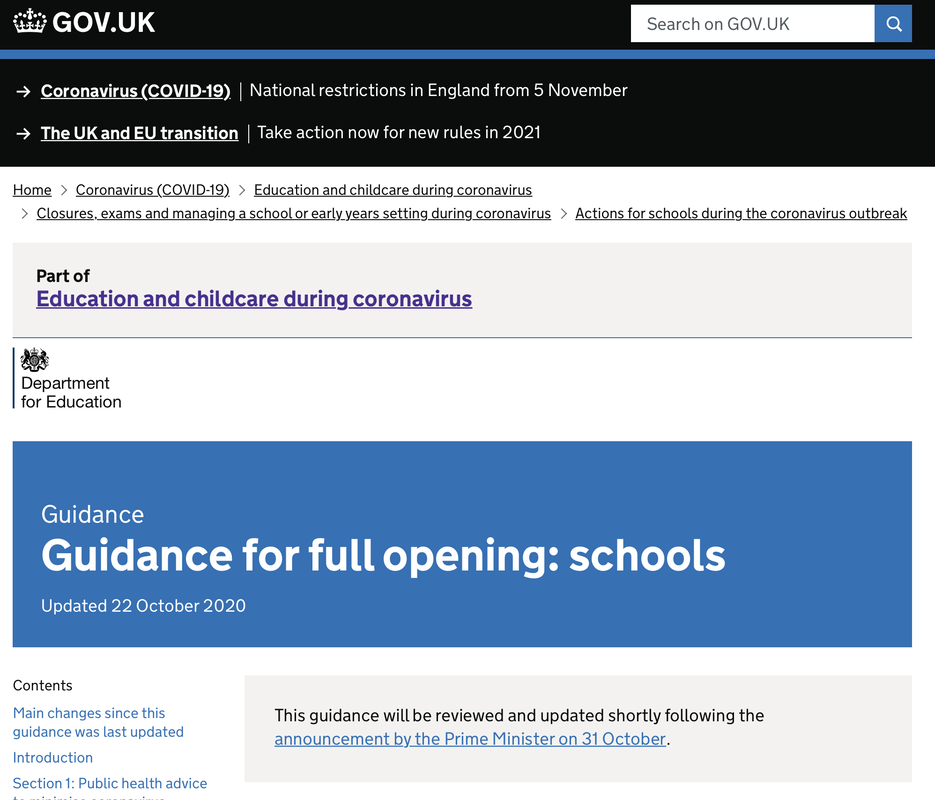
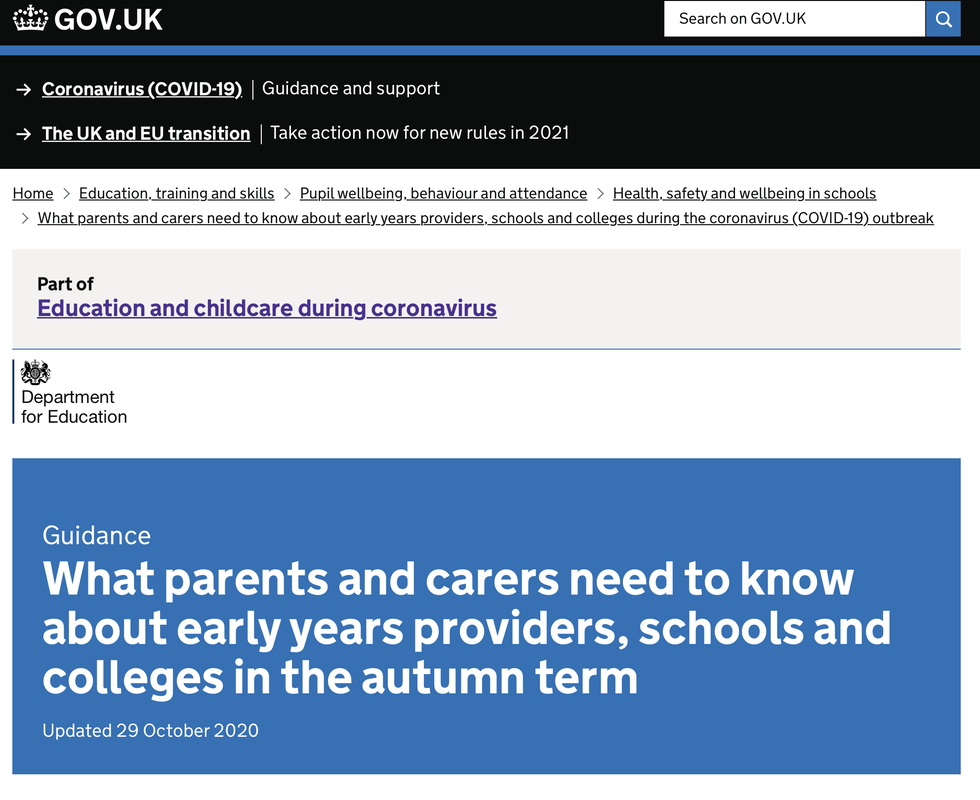








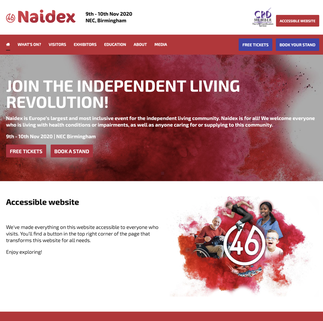



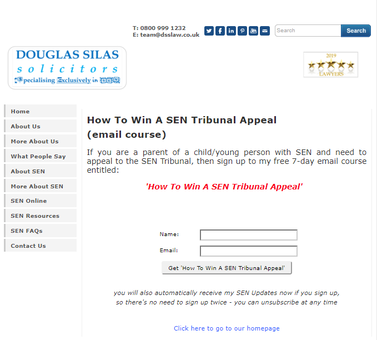
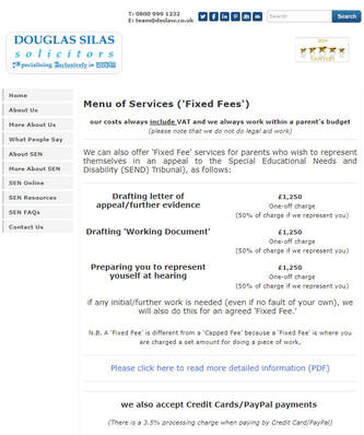



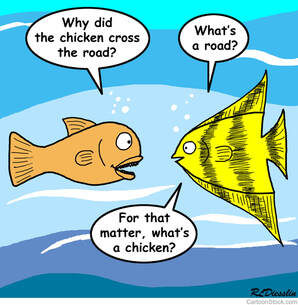




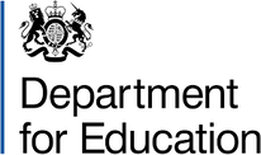













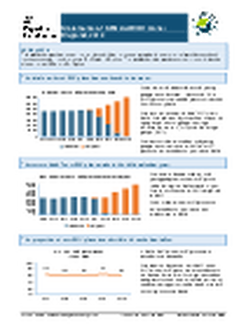
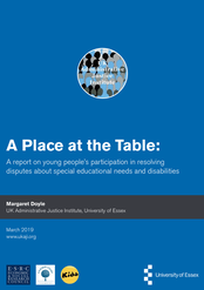


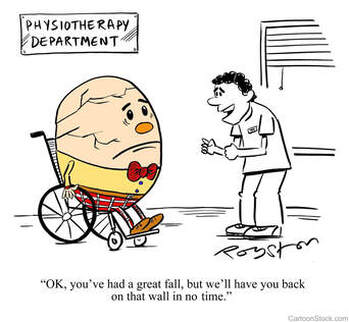
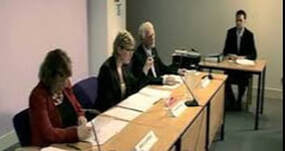






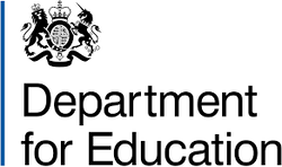


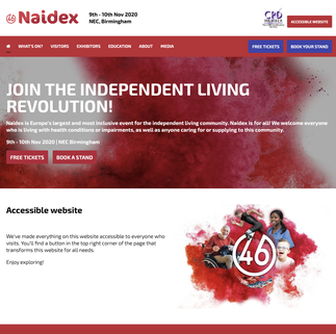


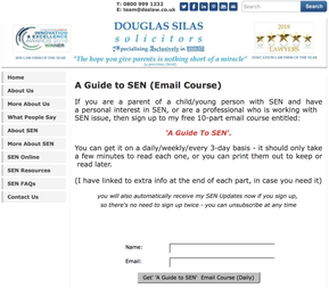

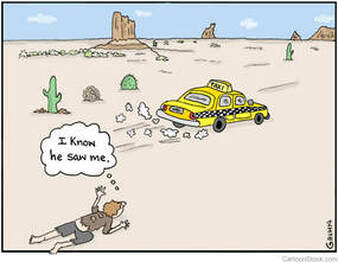

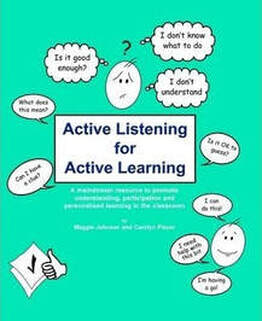





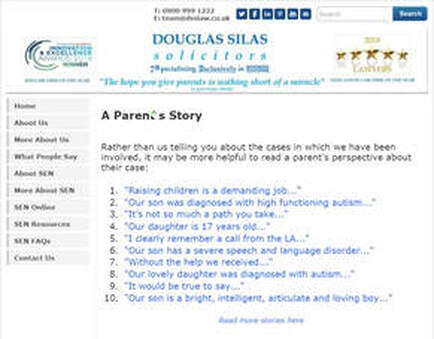


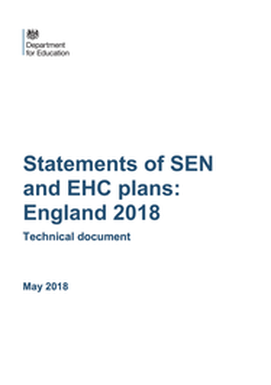
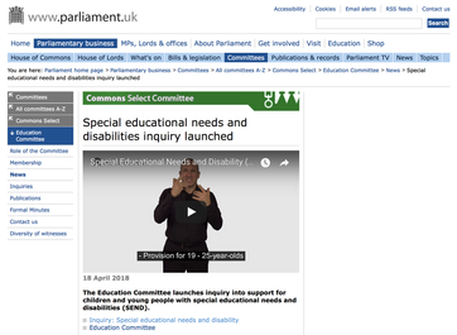
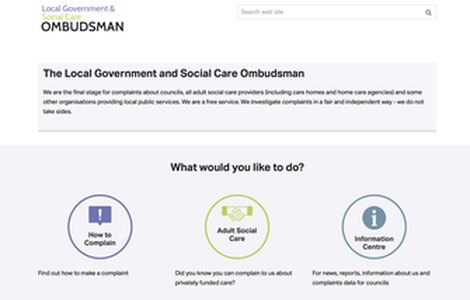
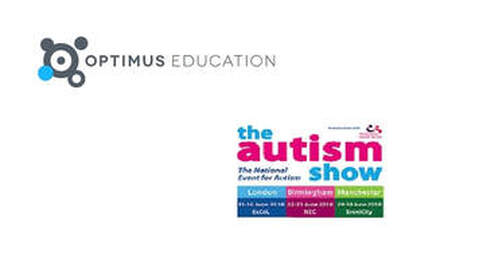


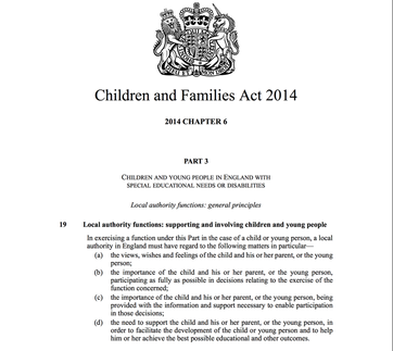


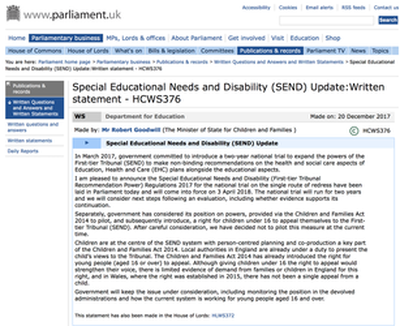



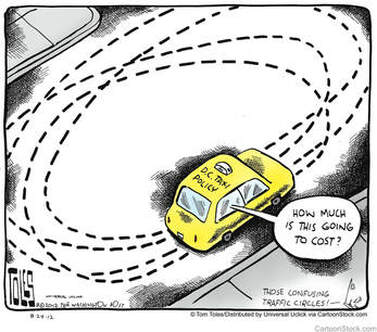


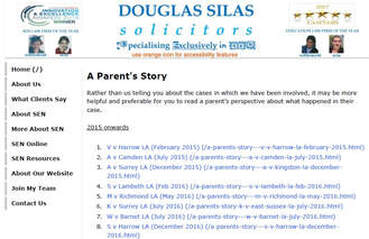

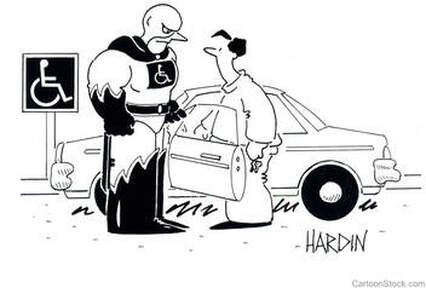









 RSS Feed
RSS Feed







